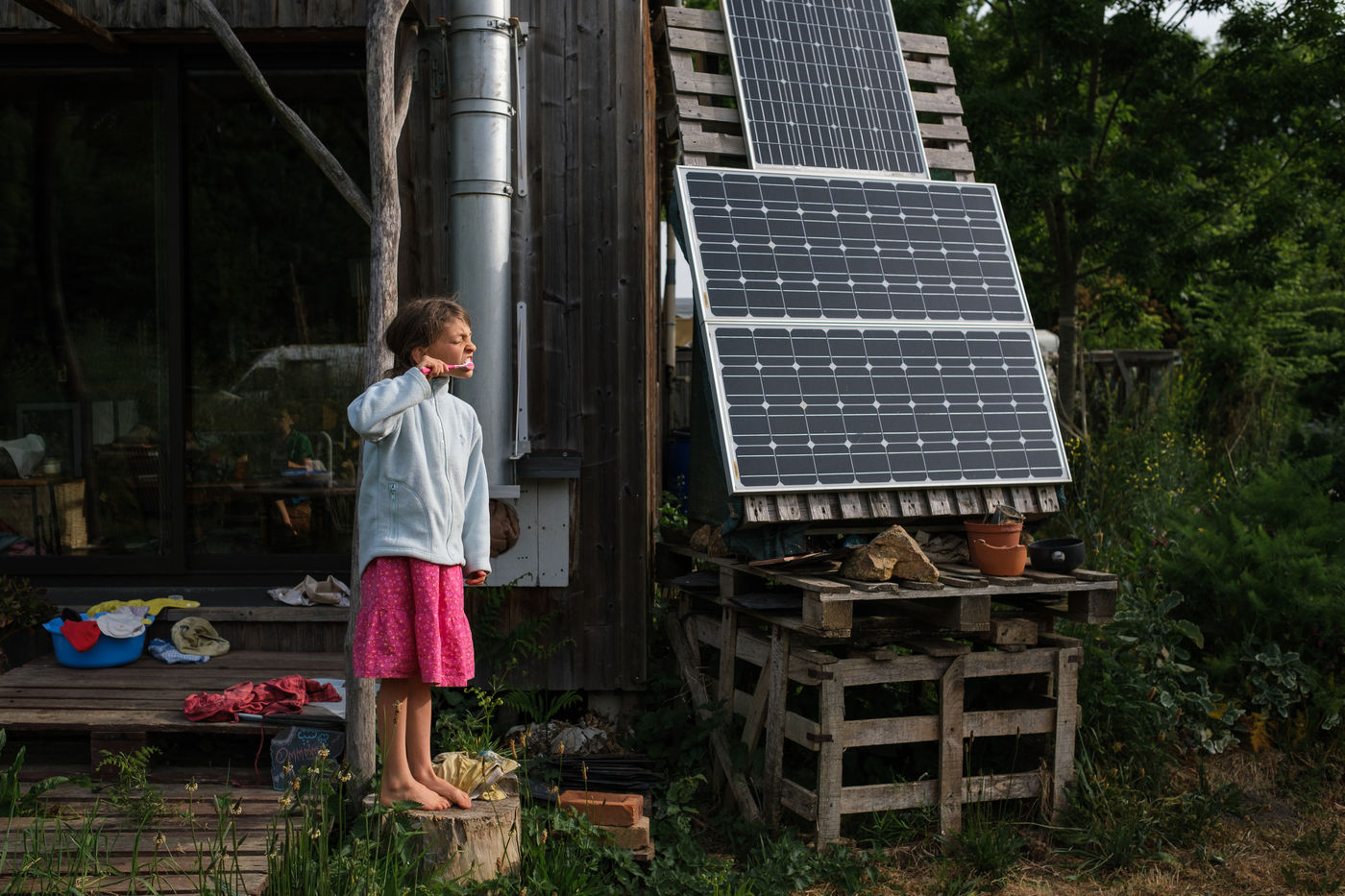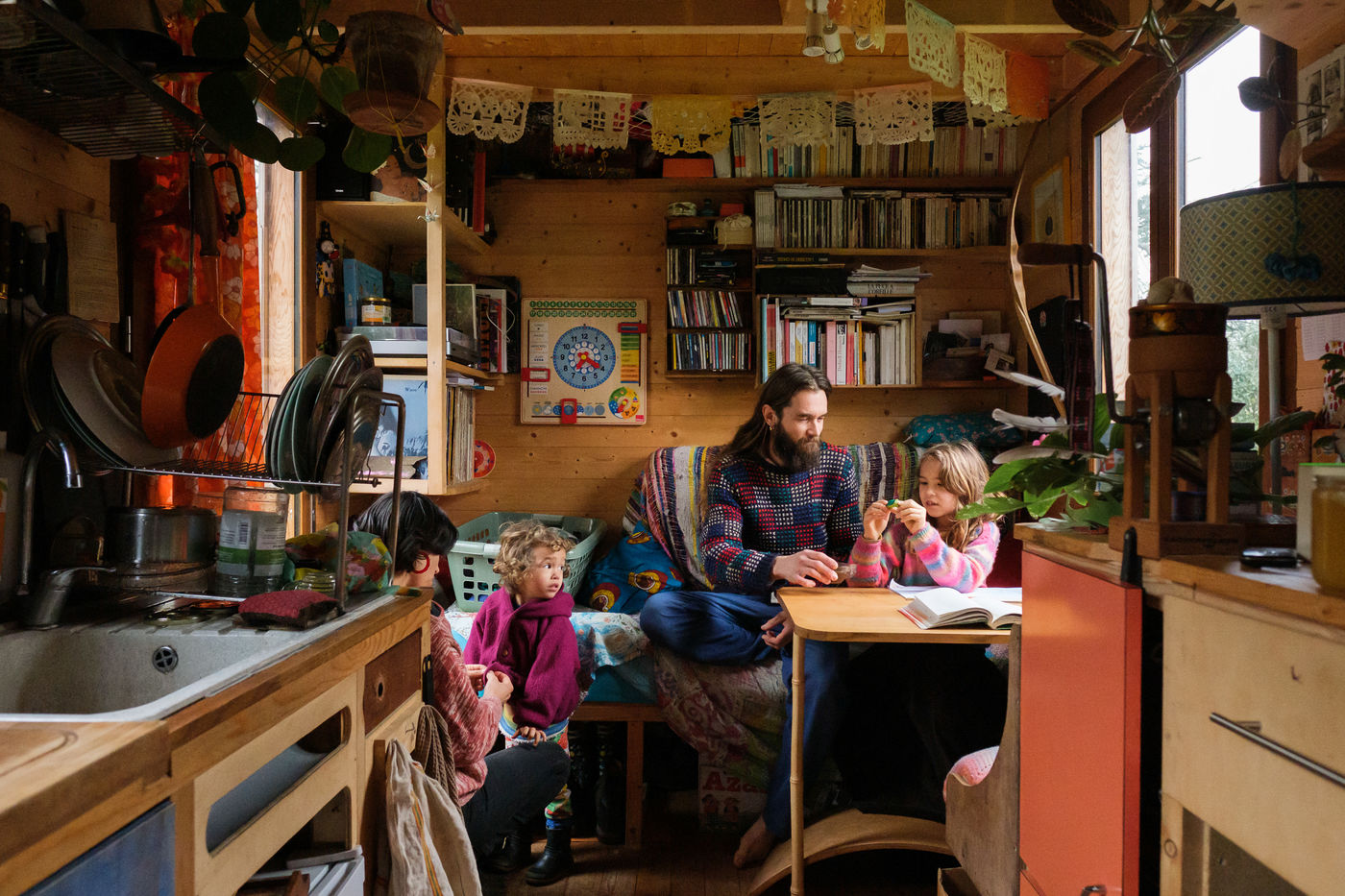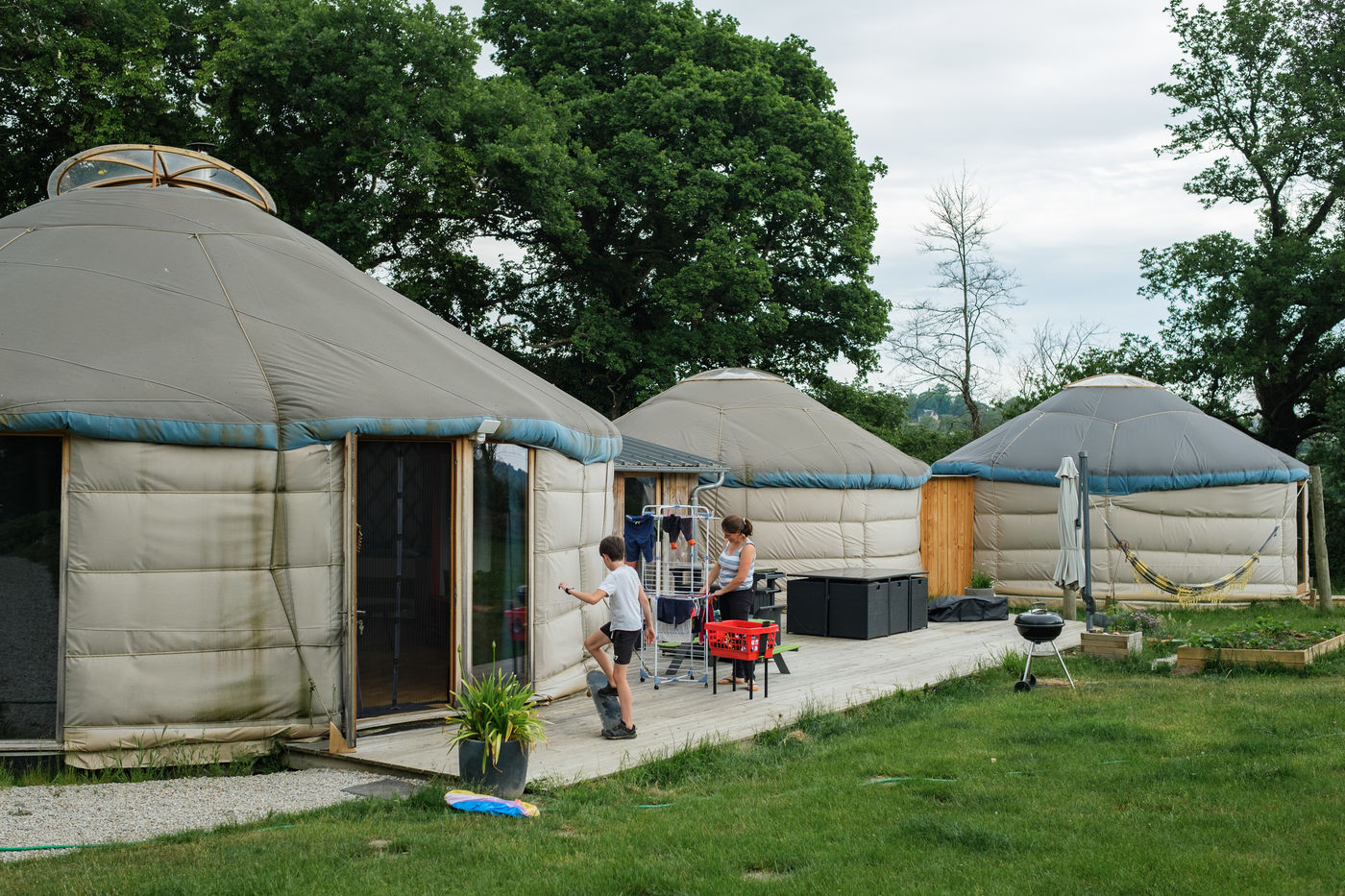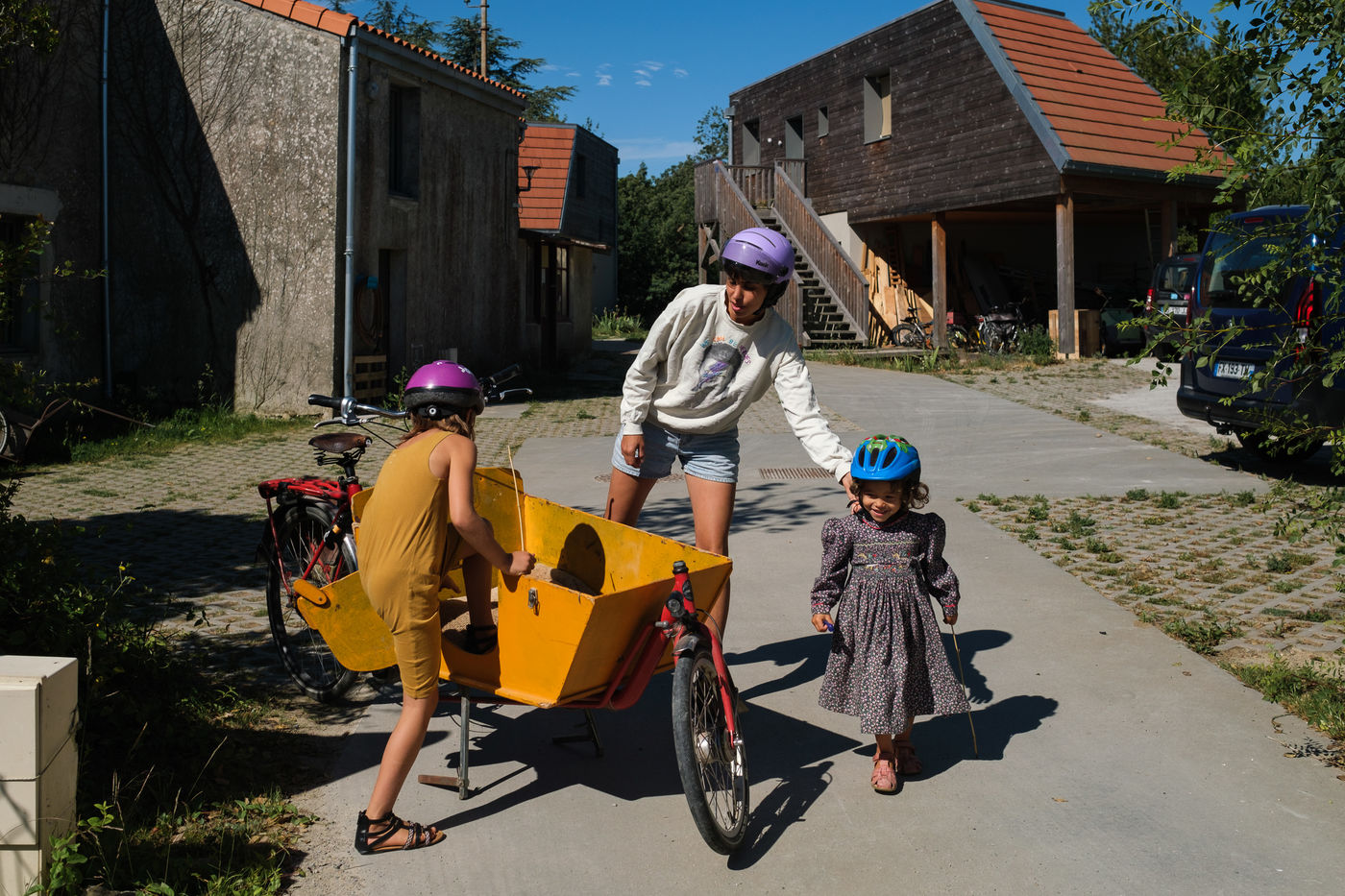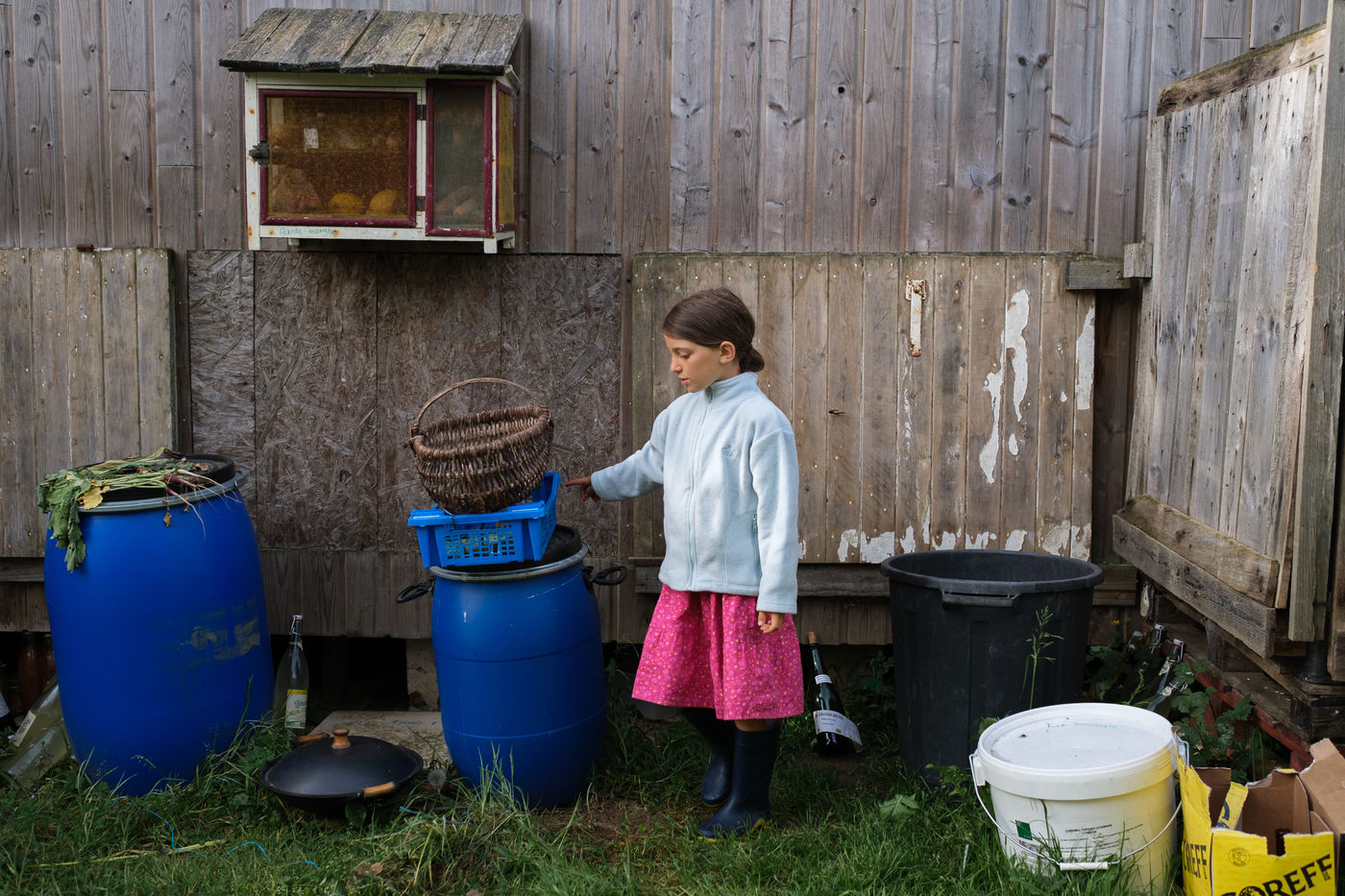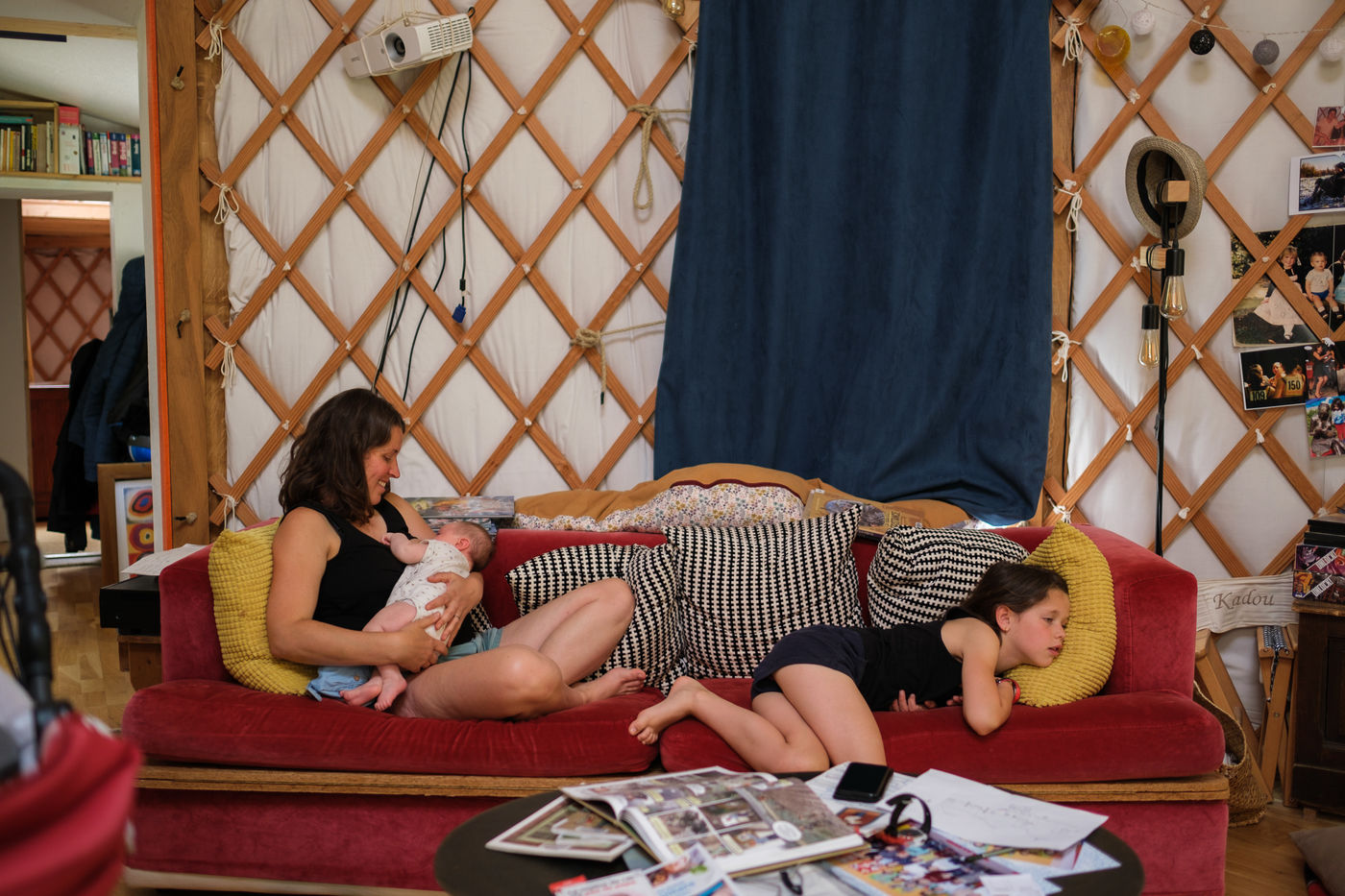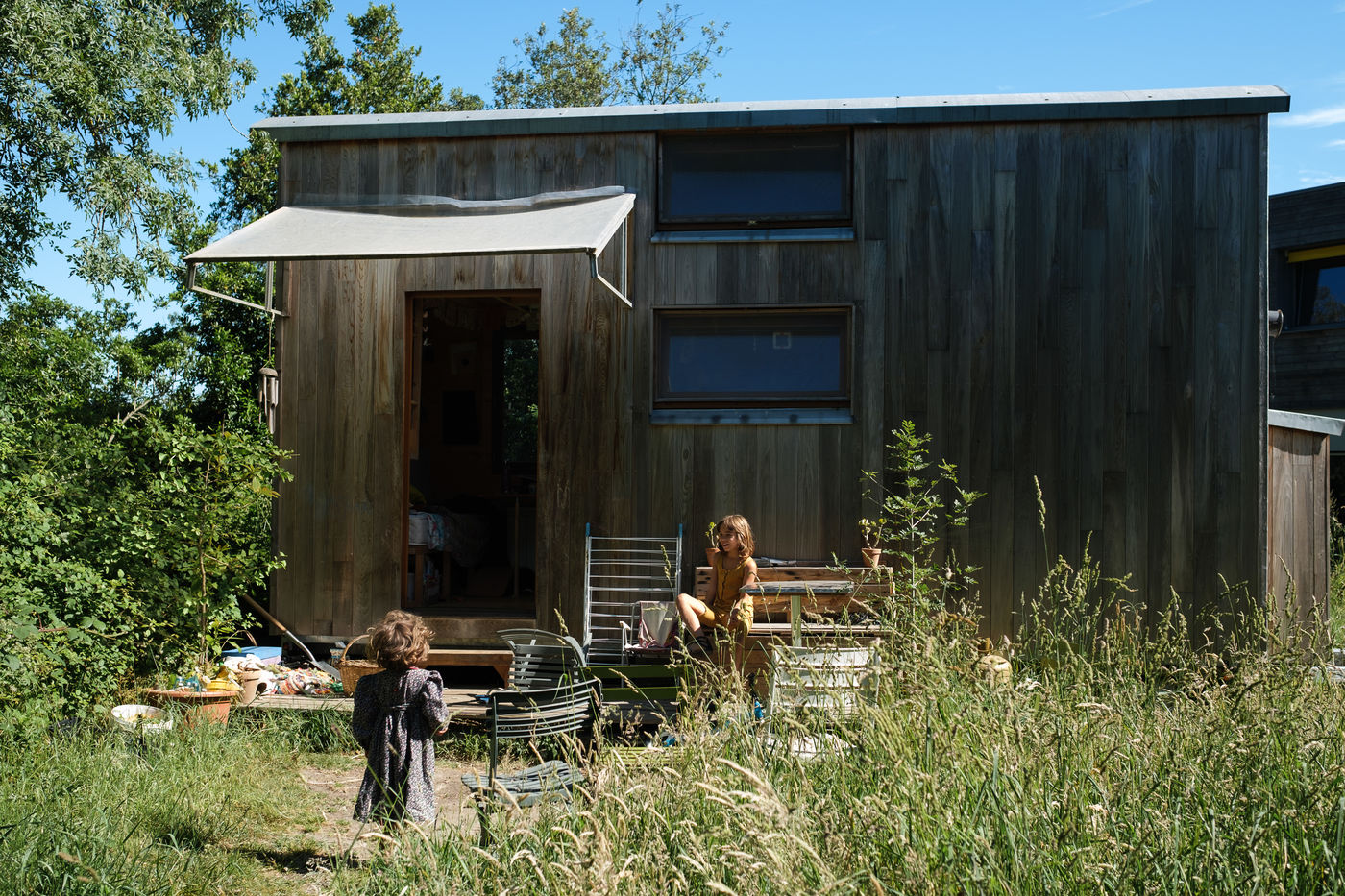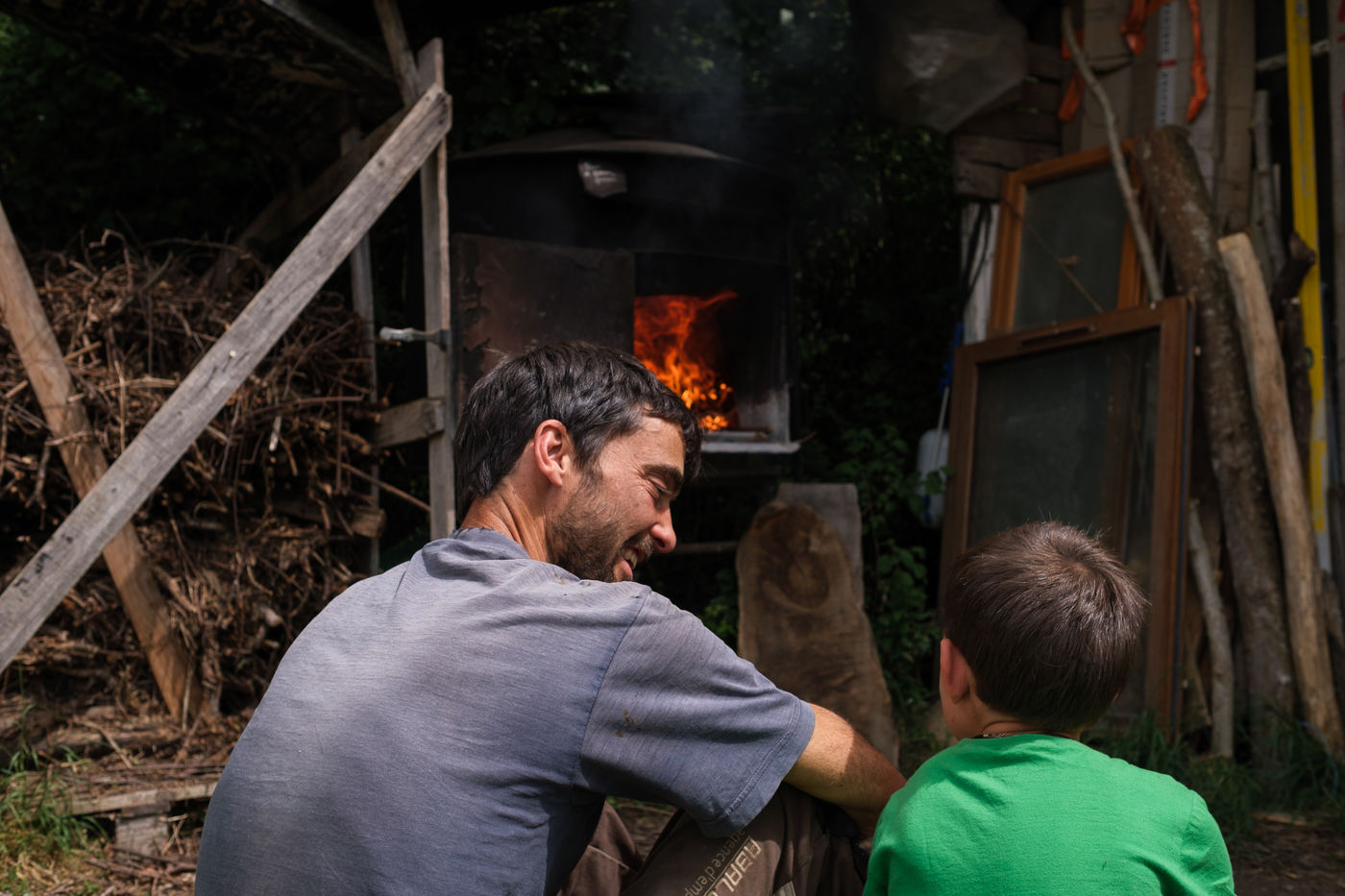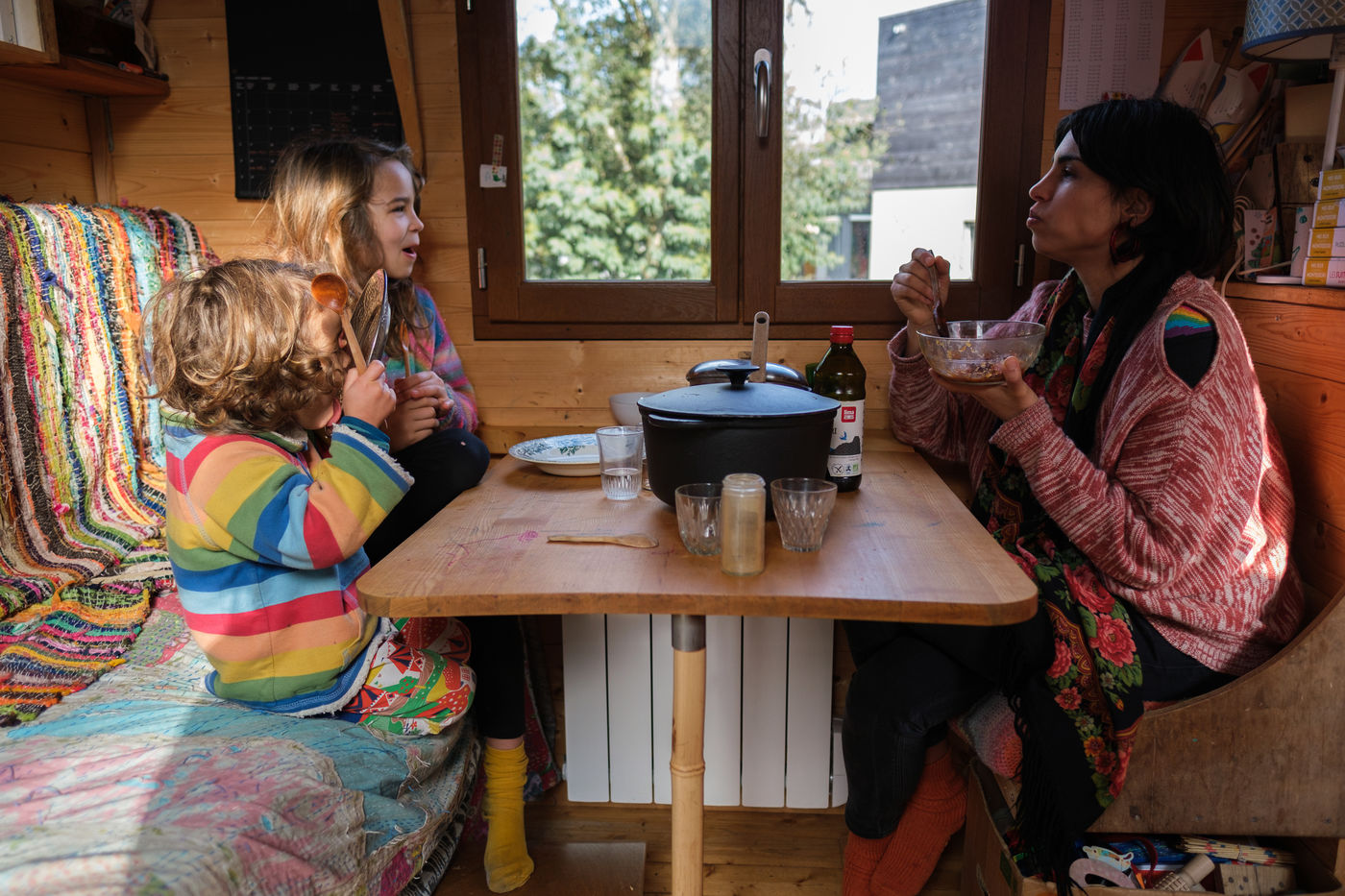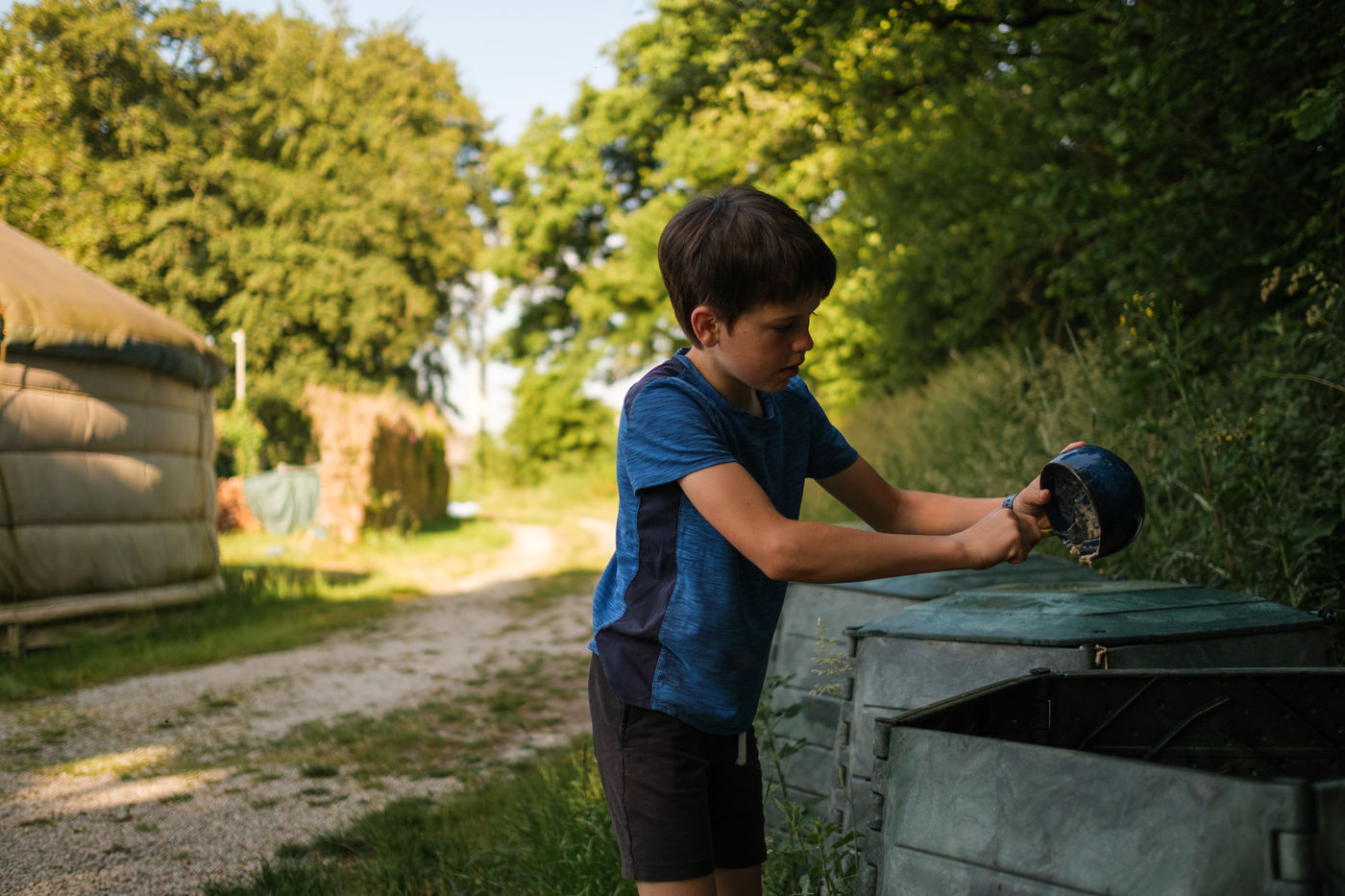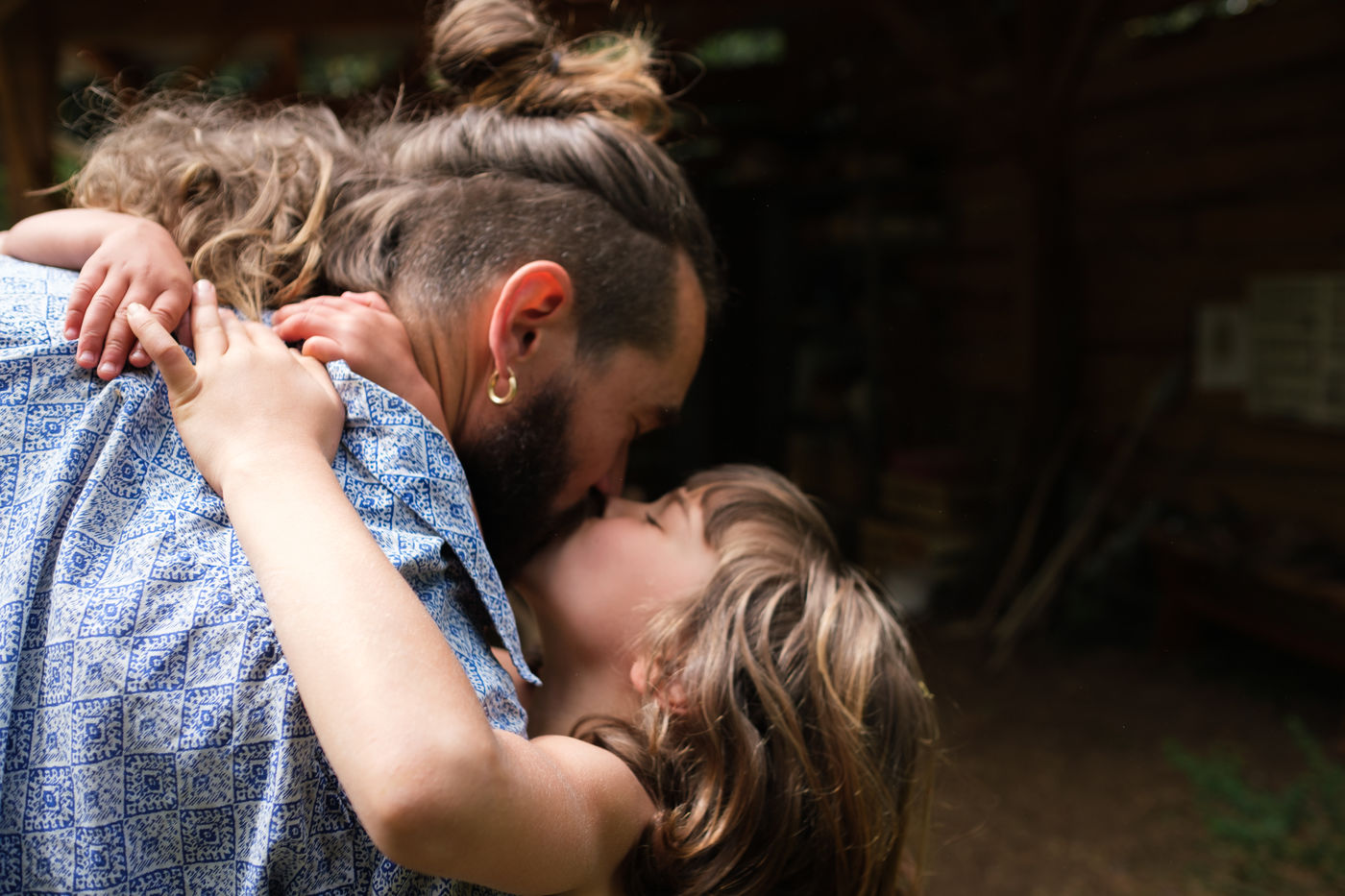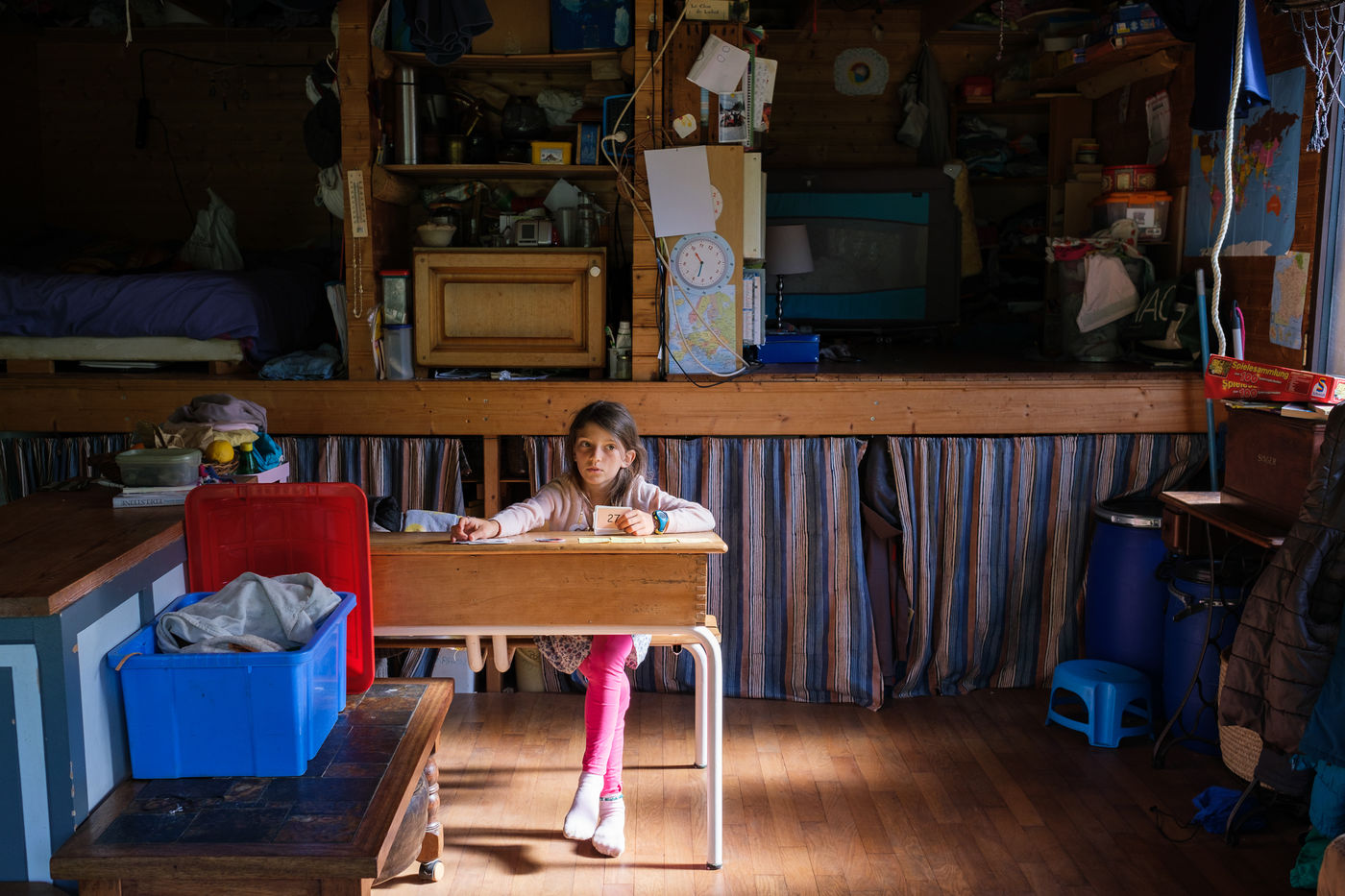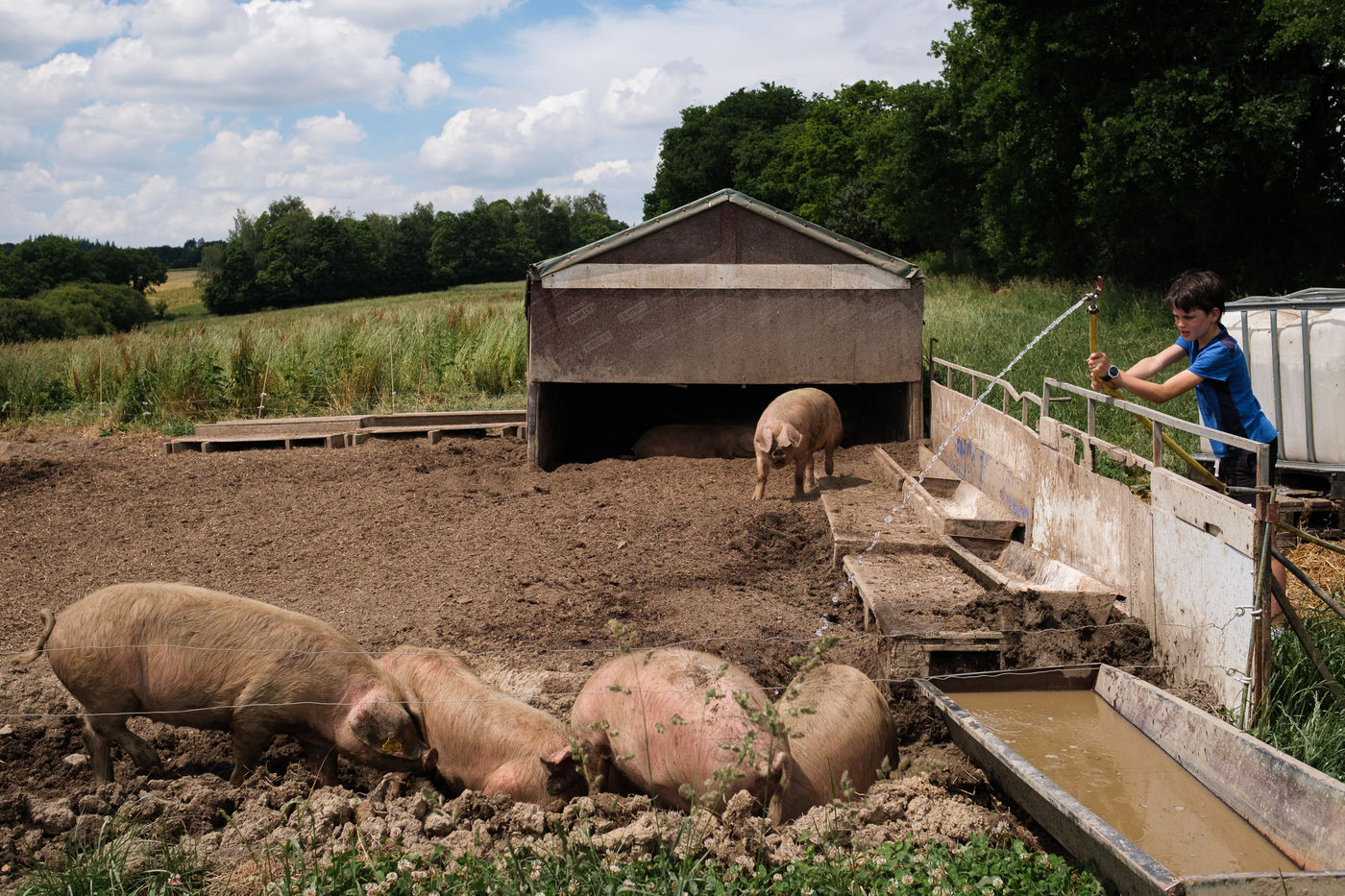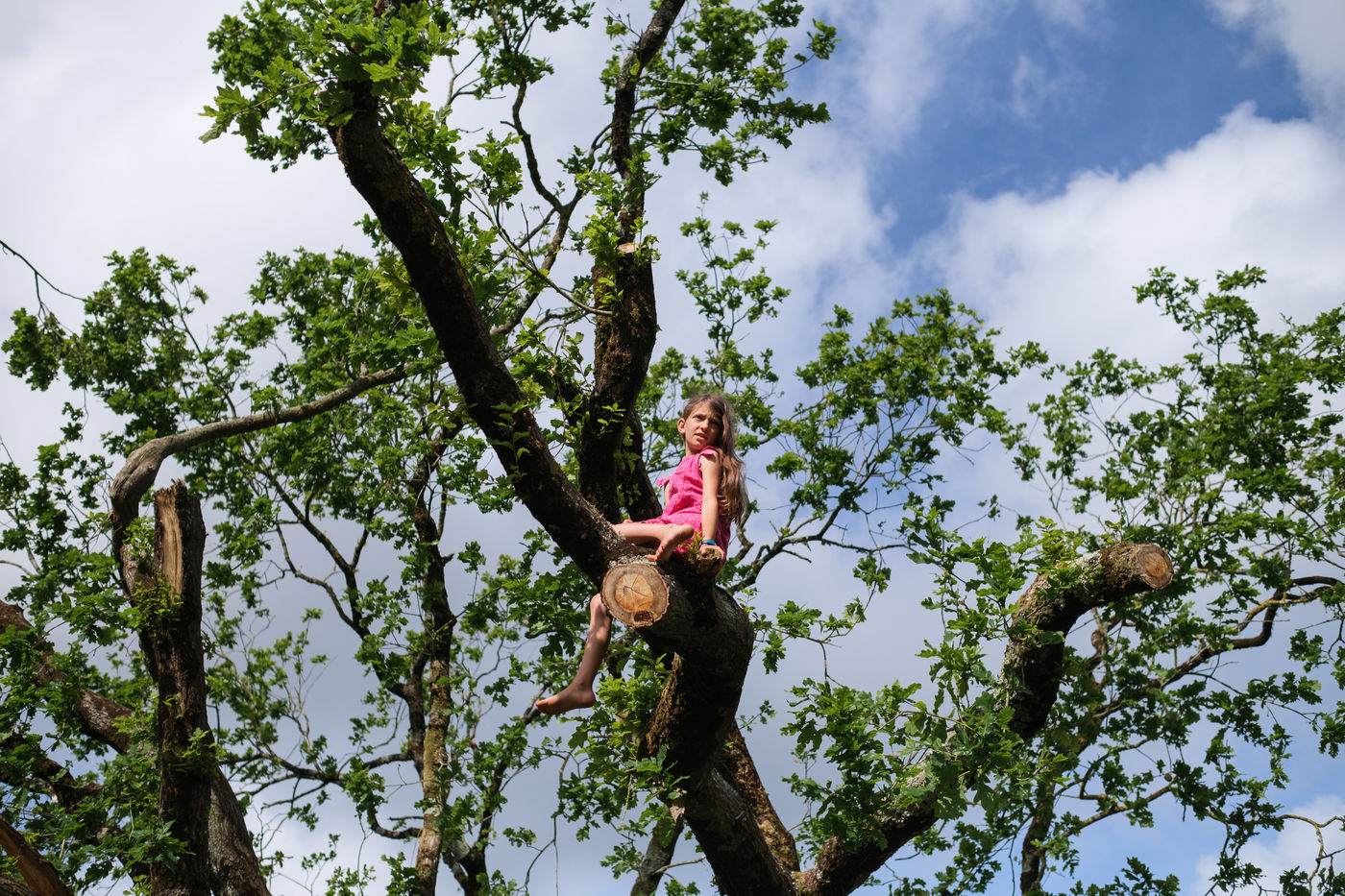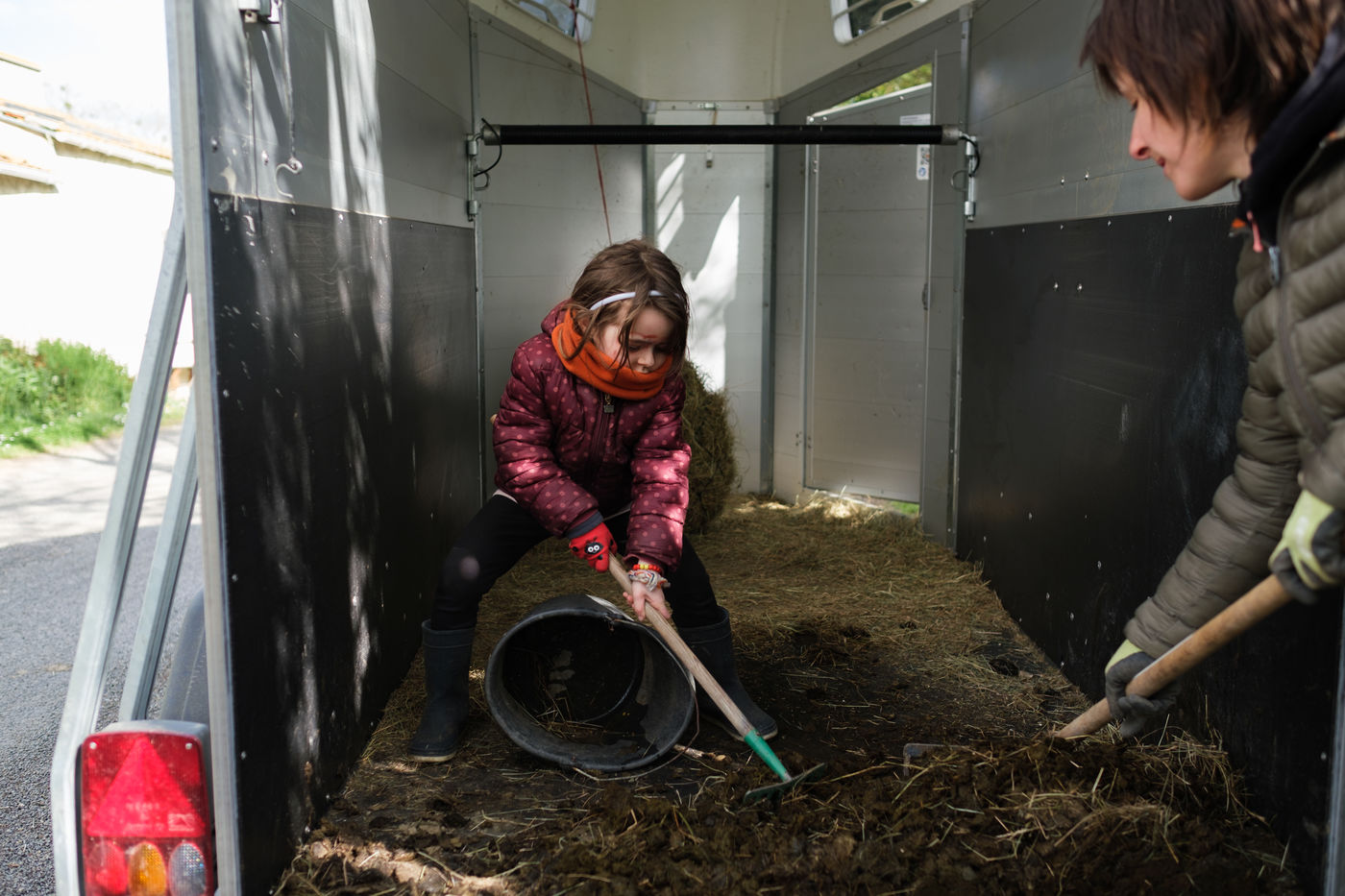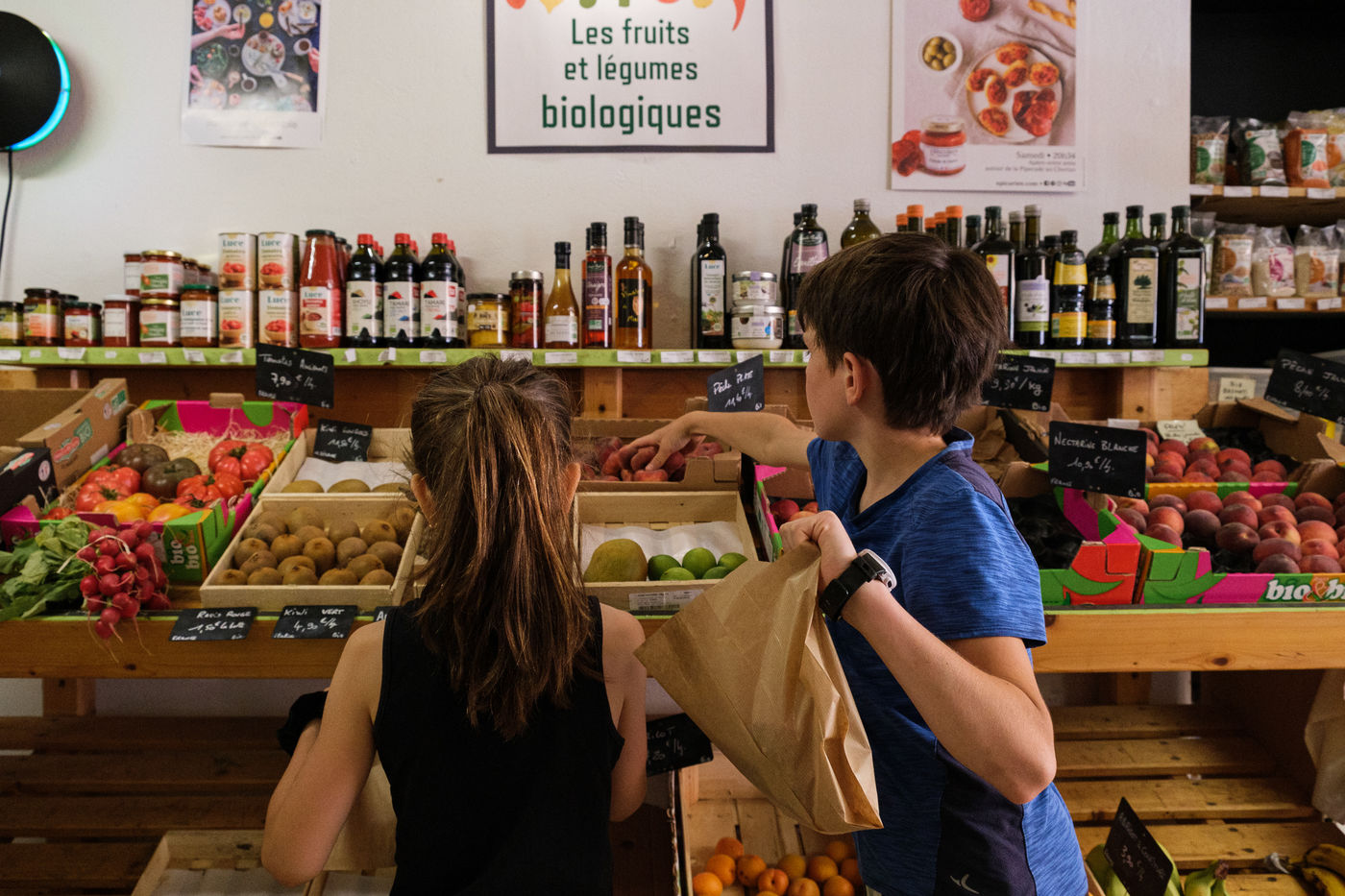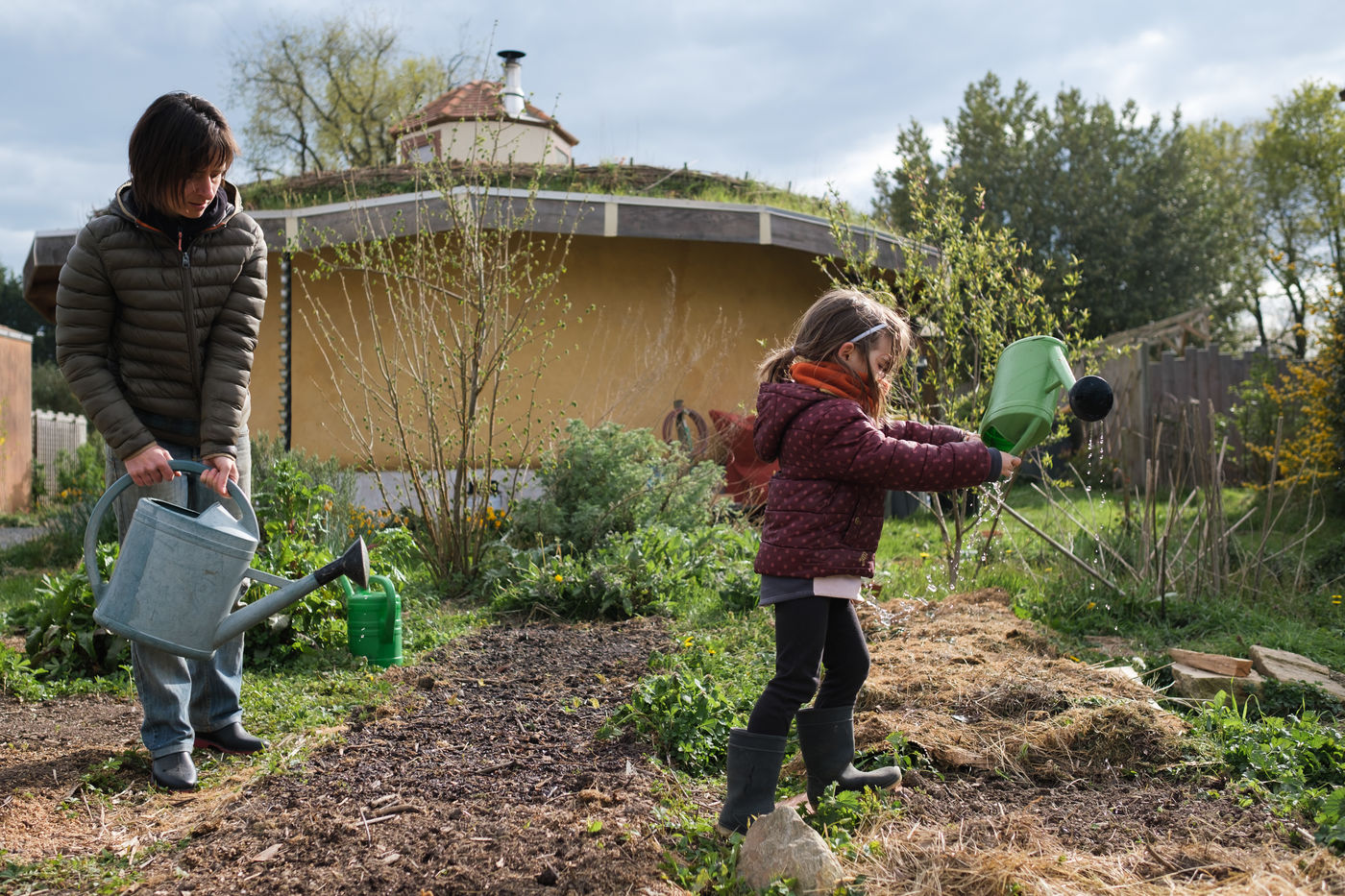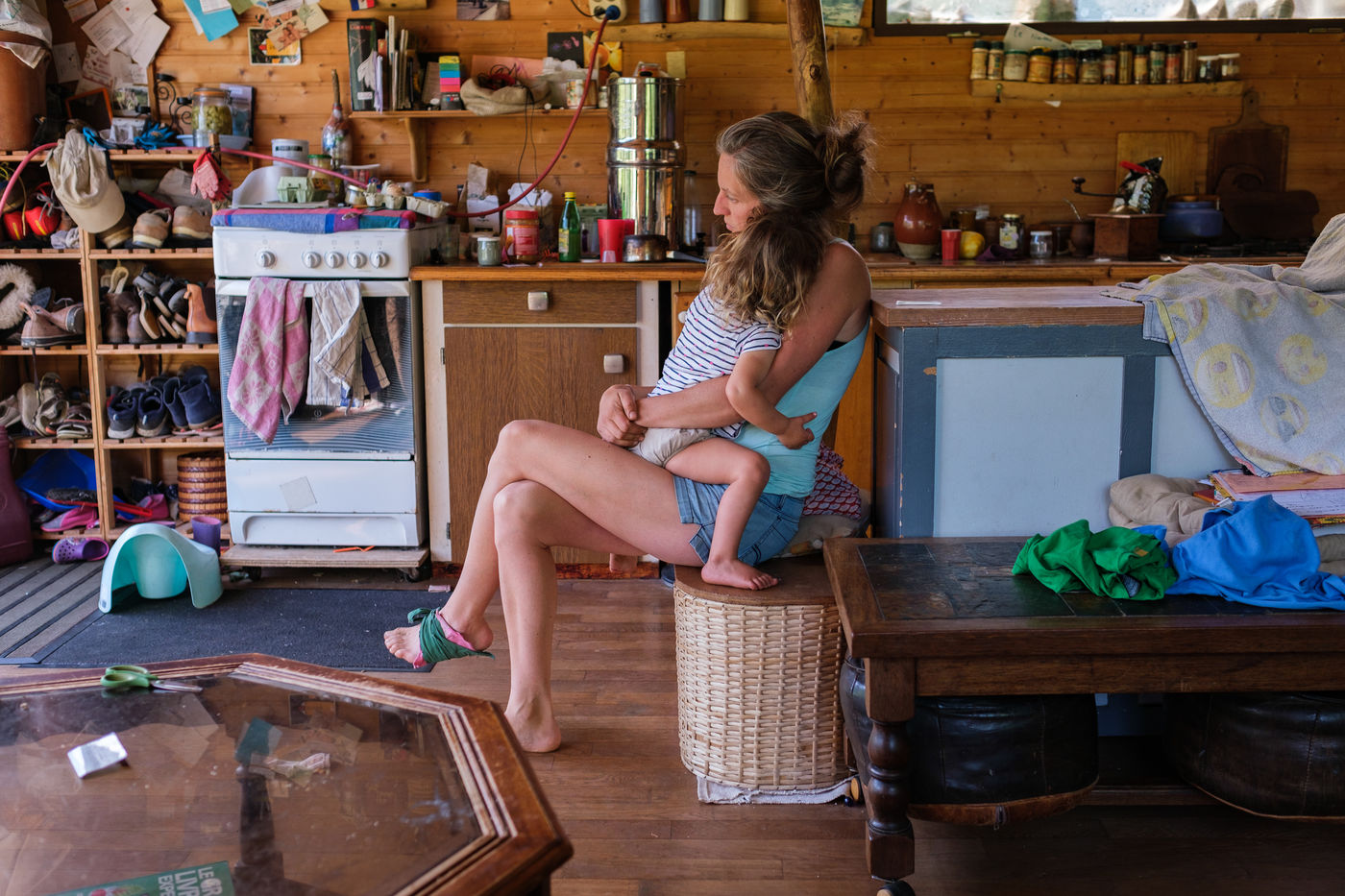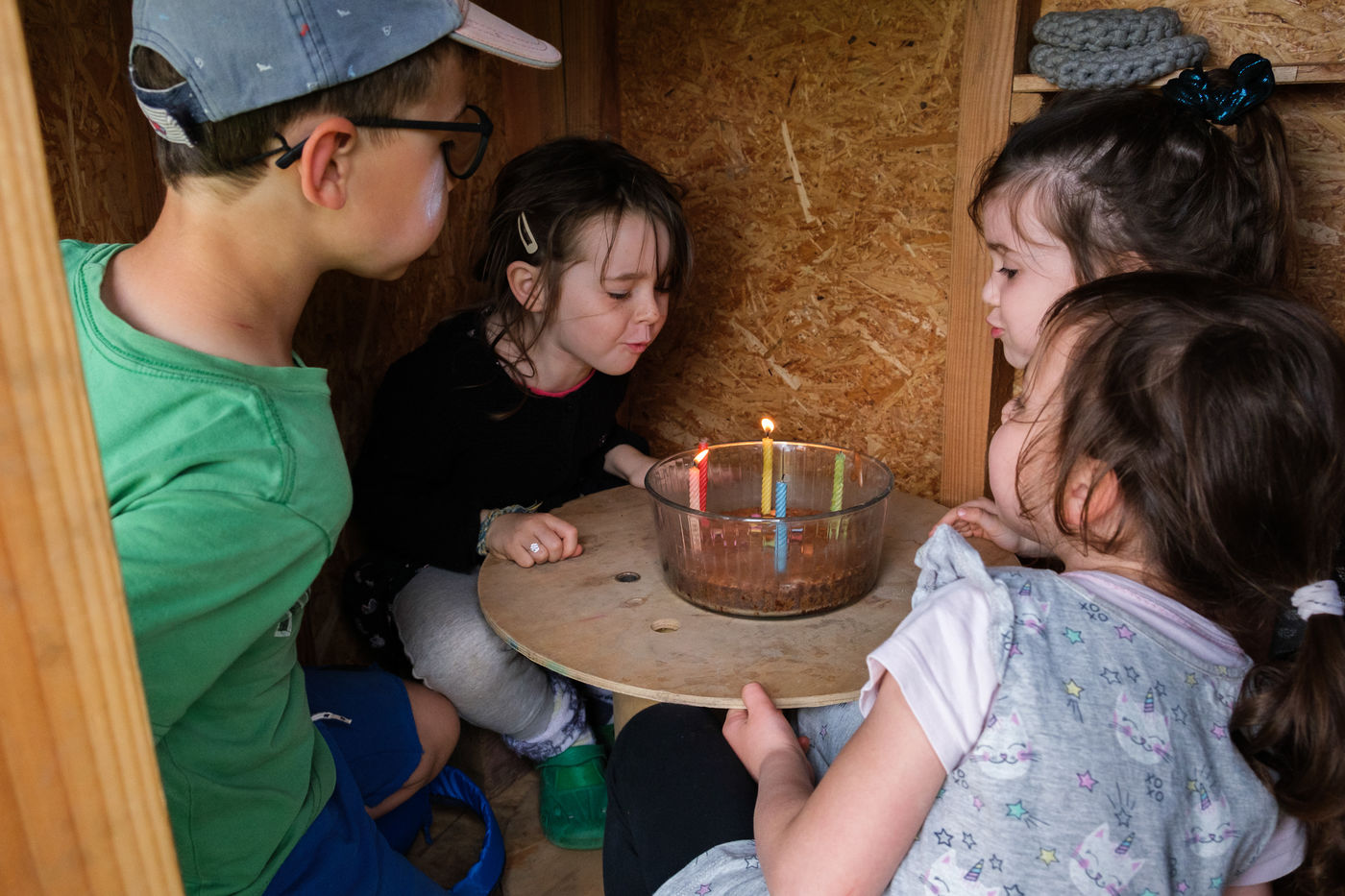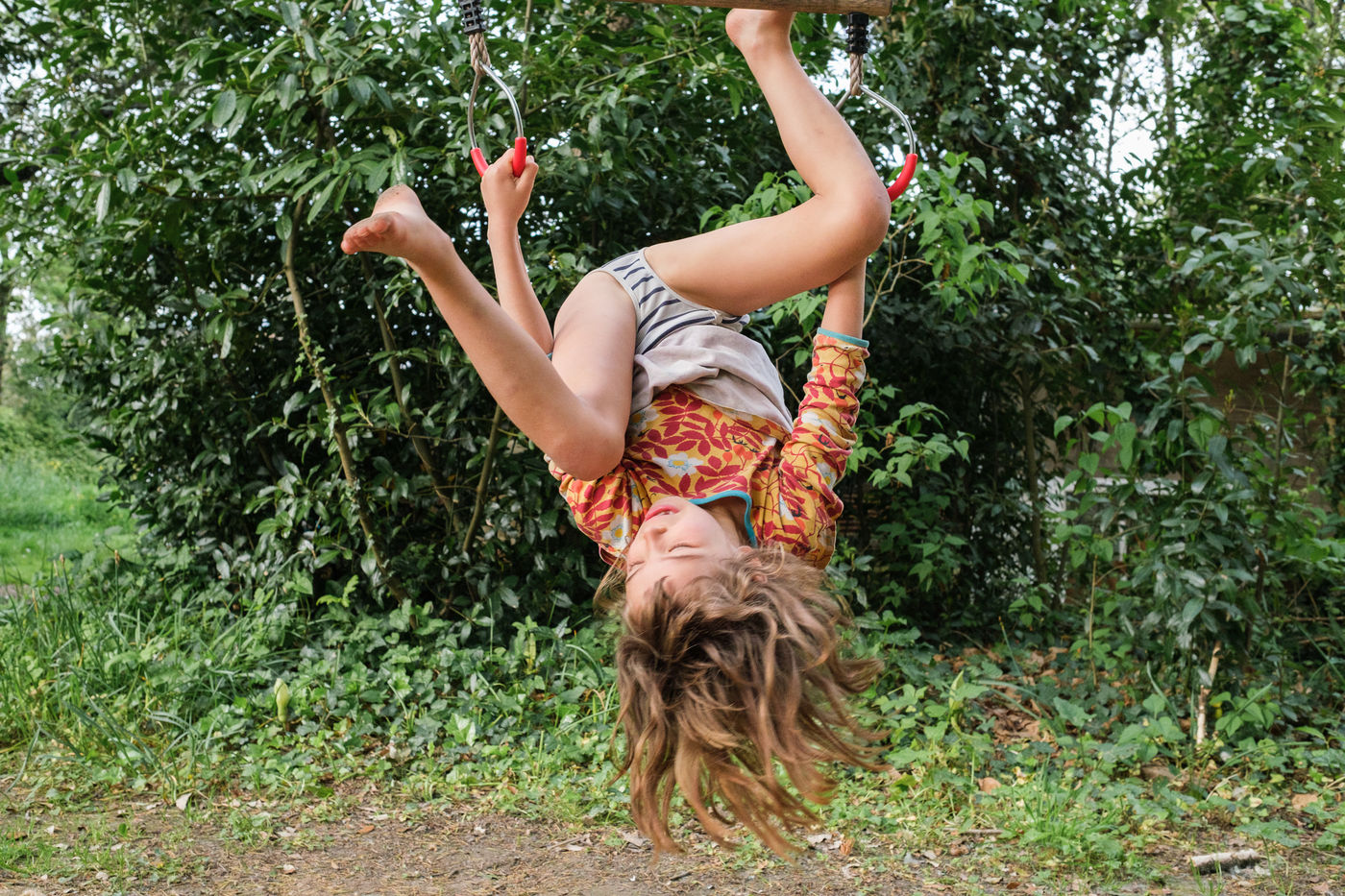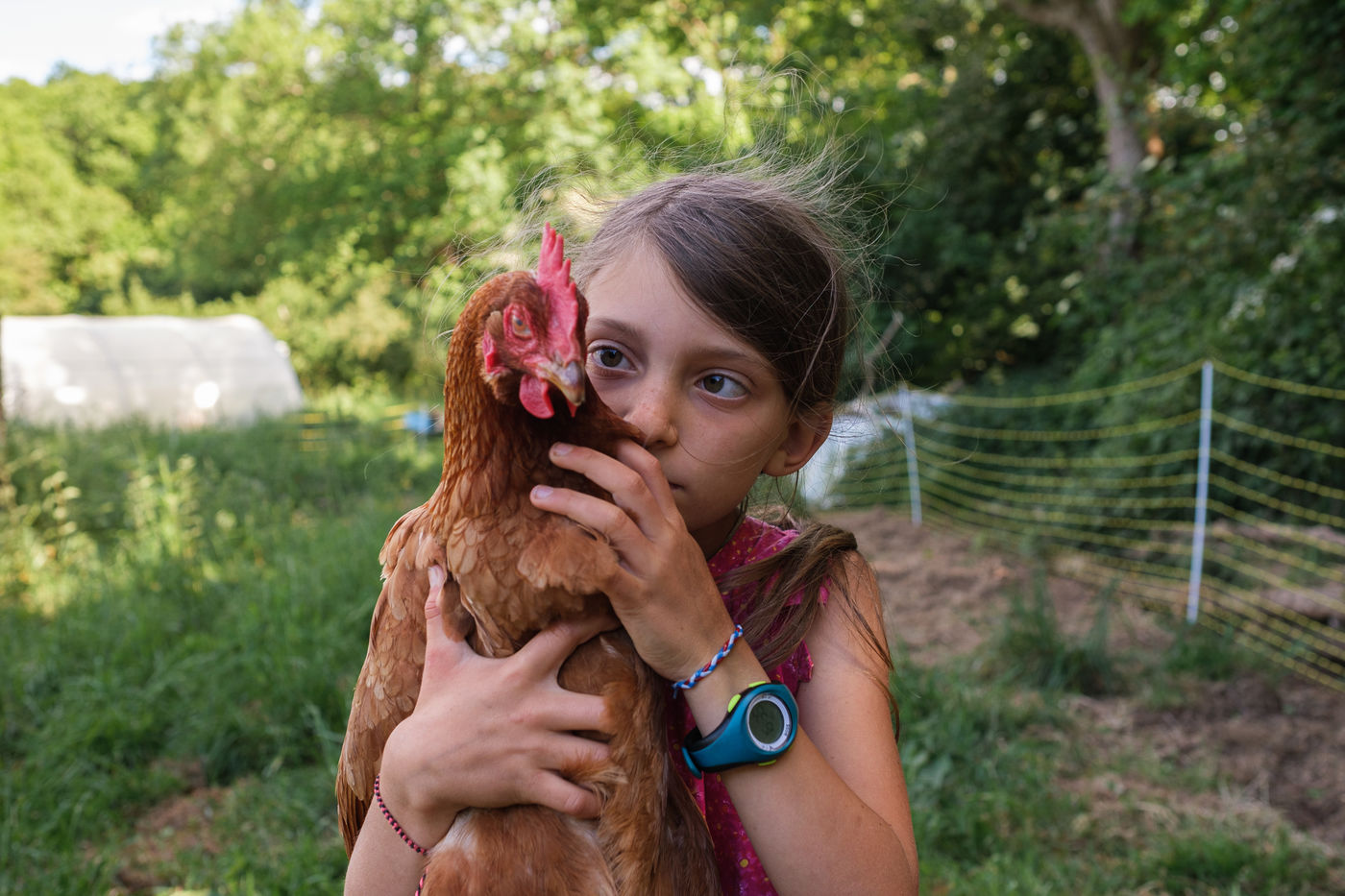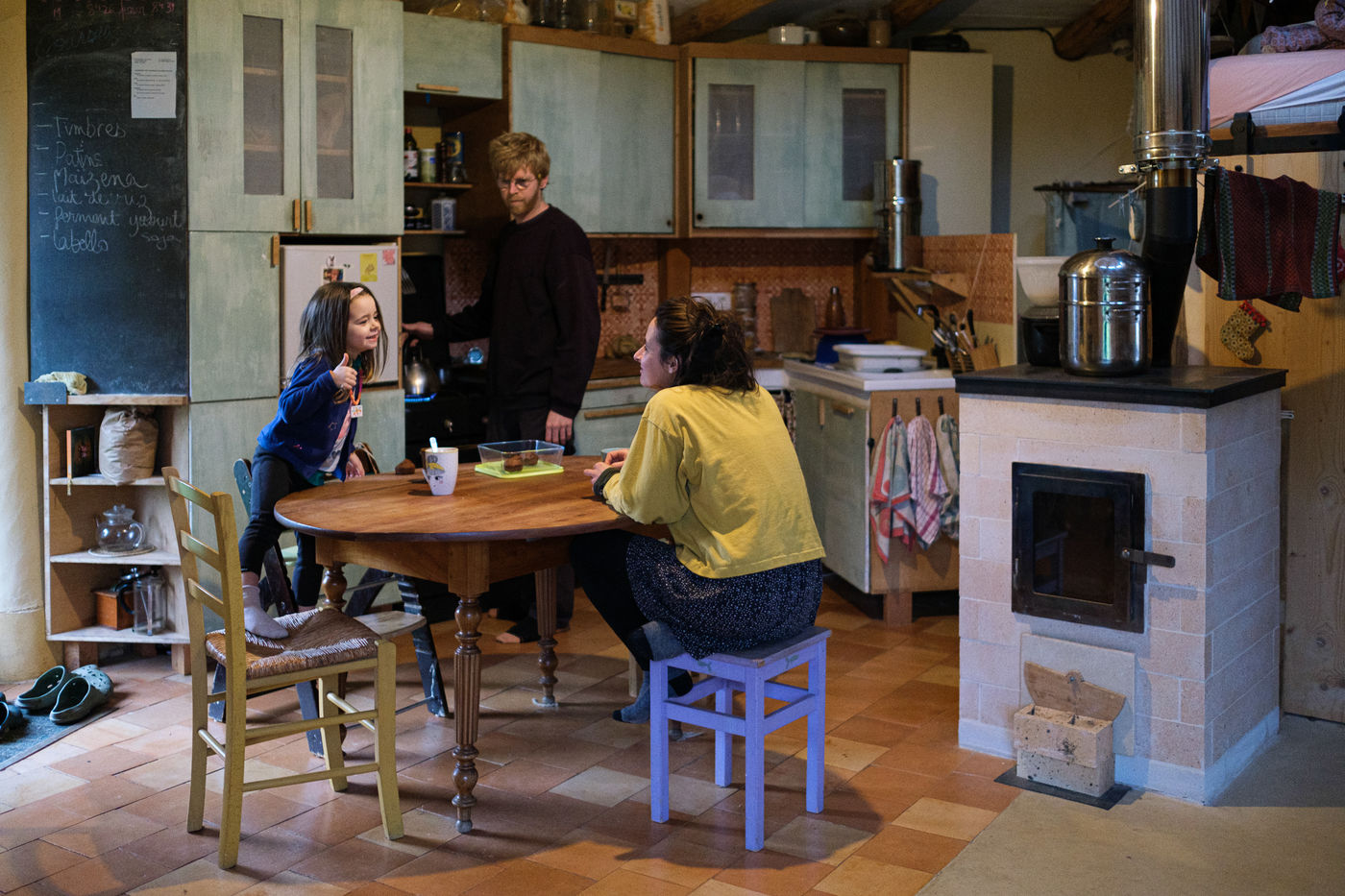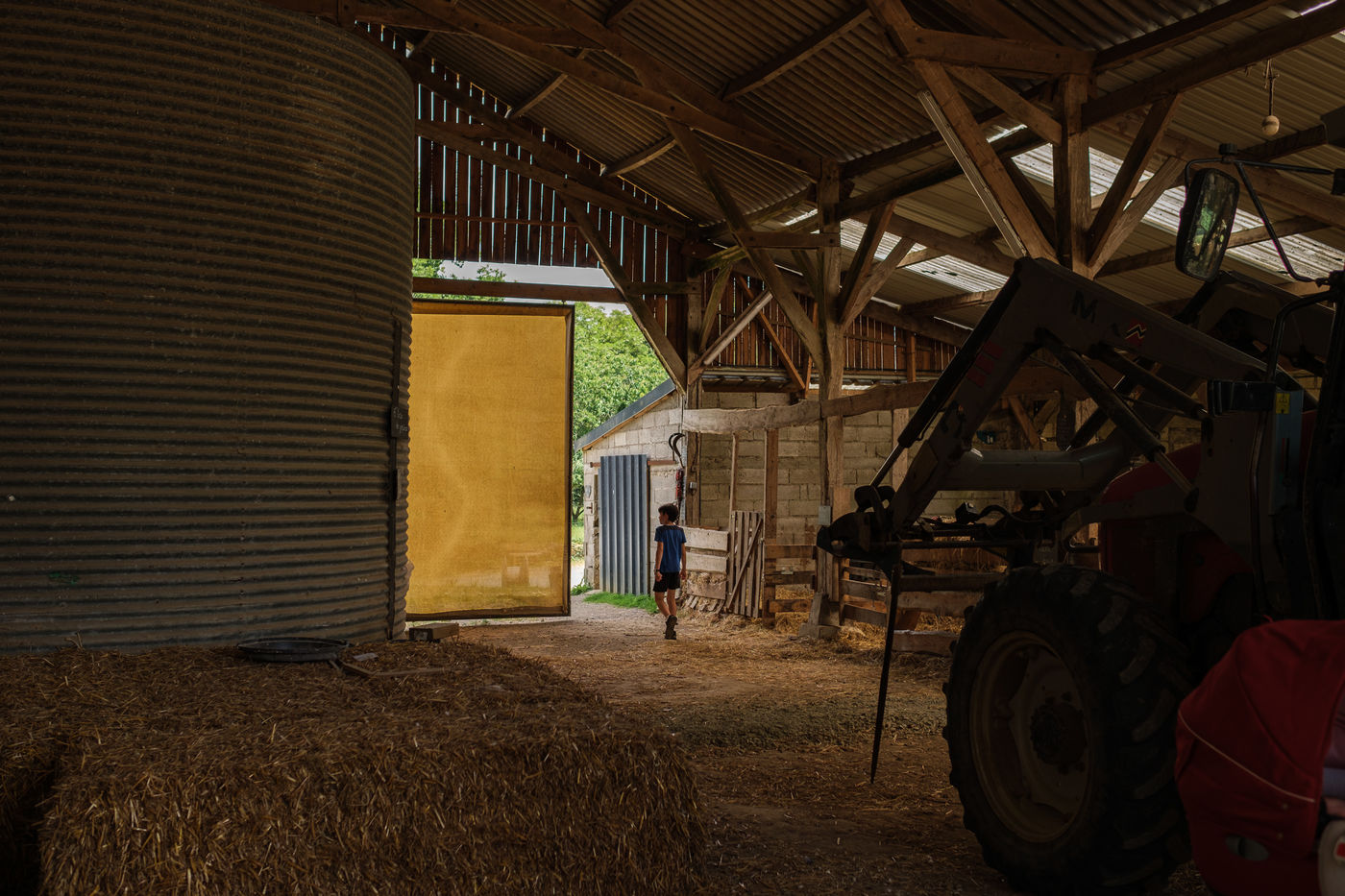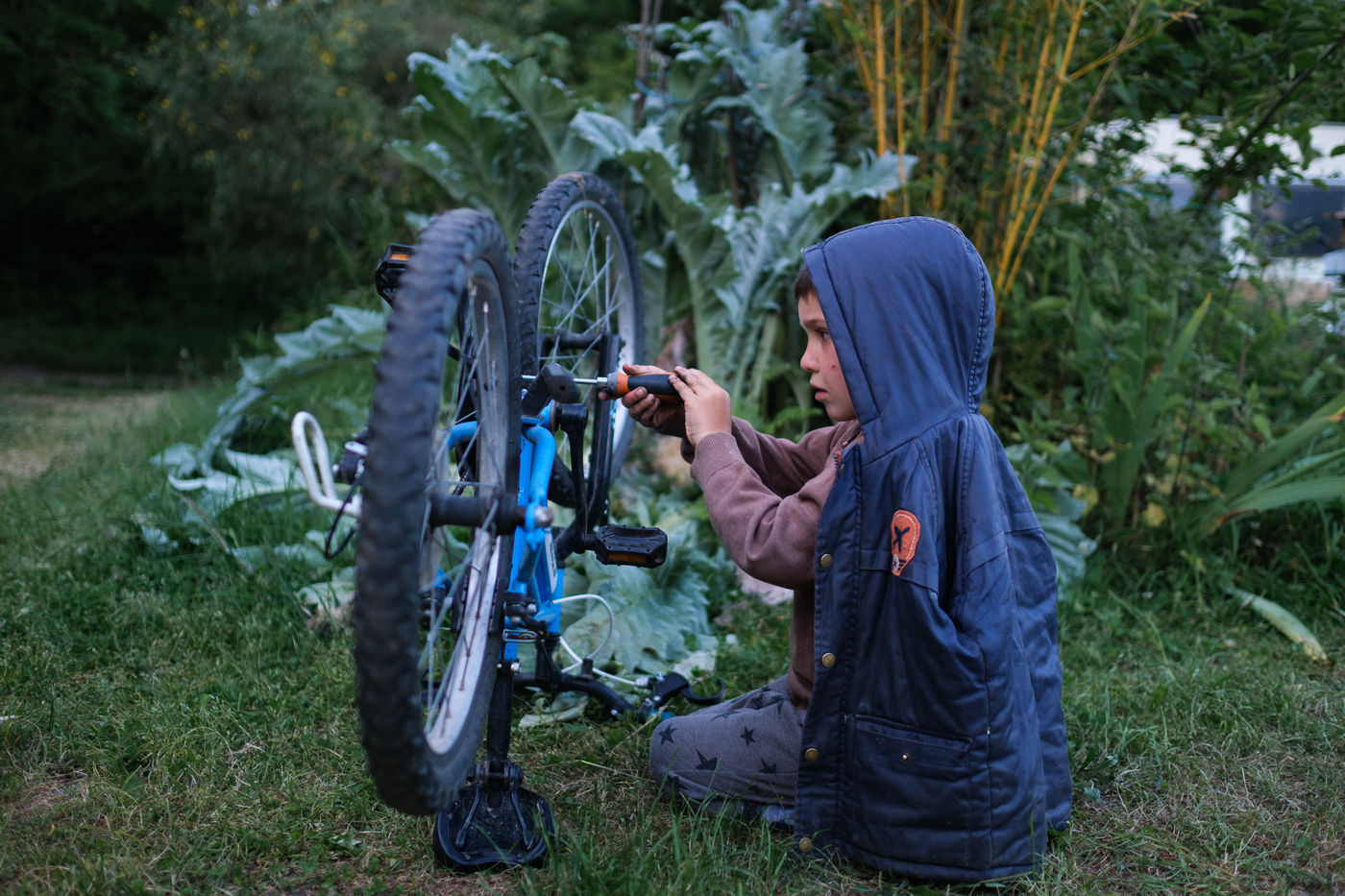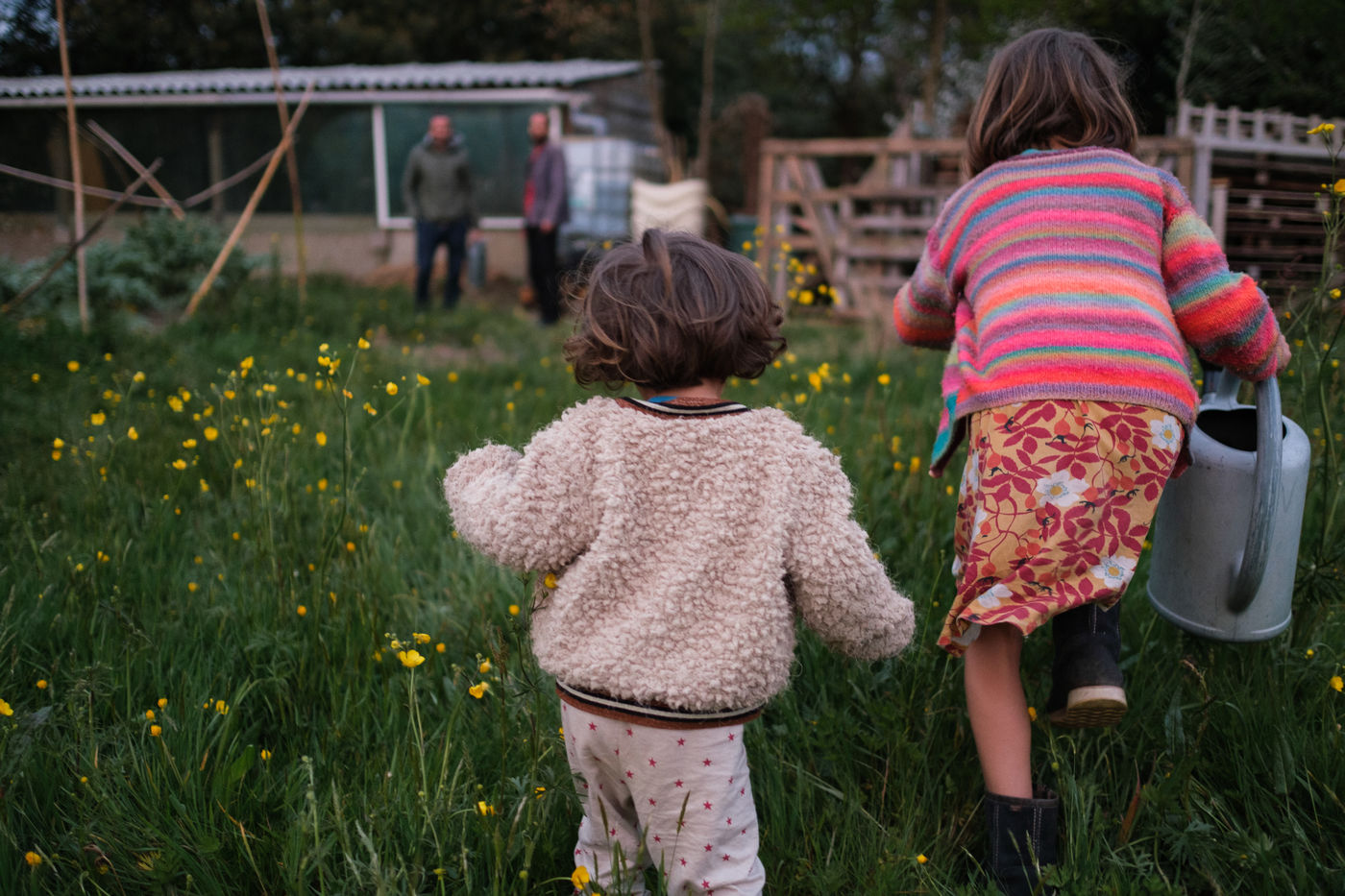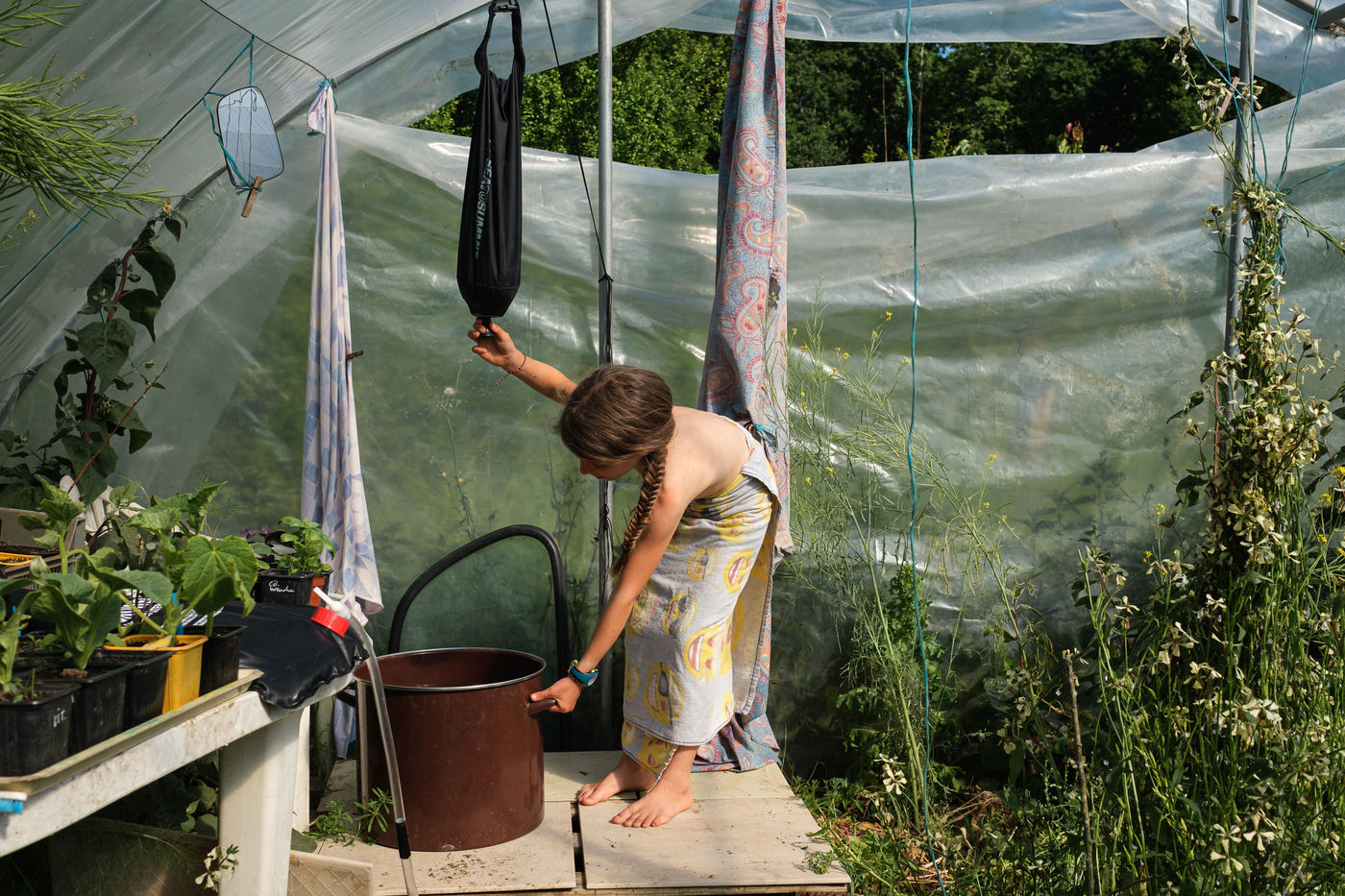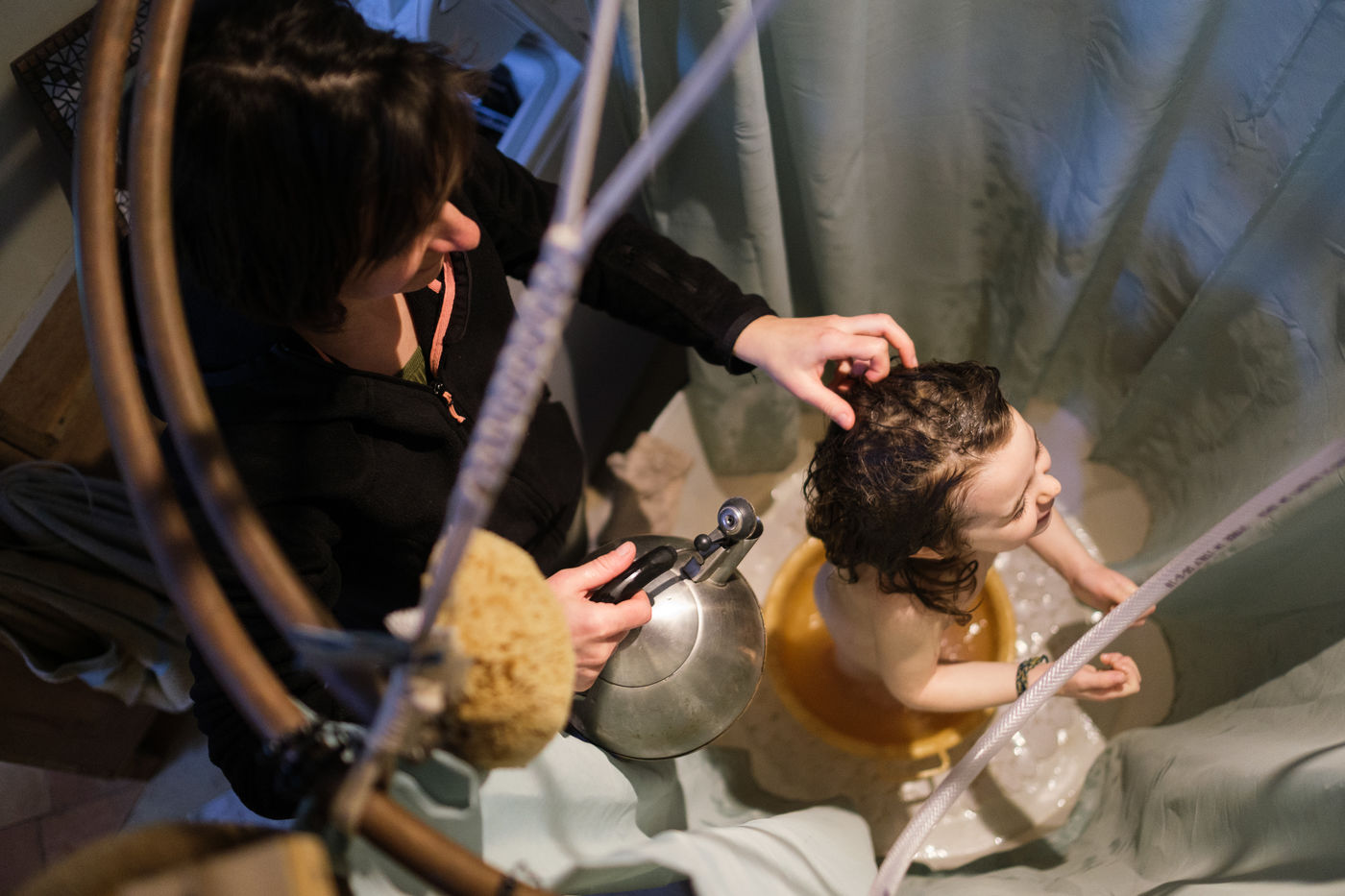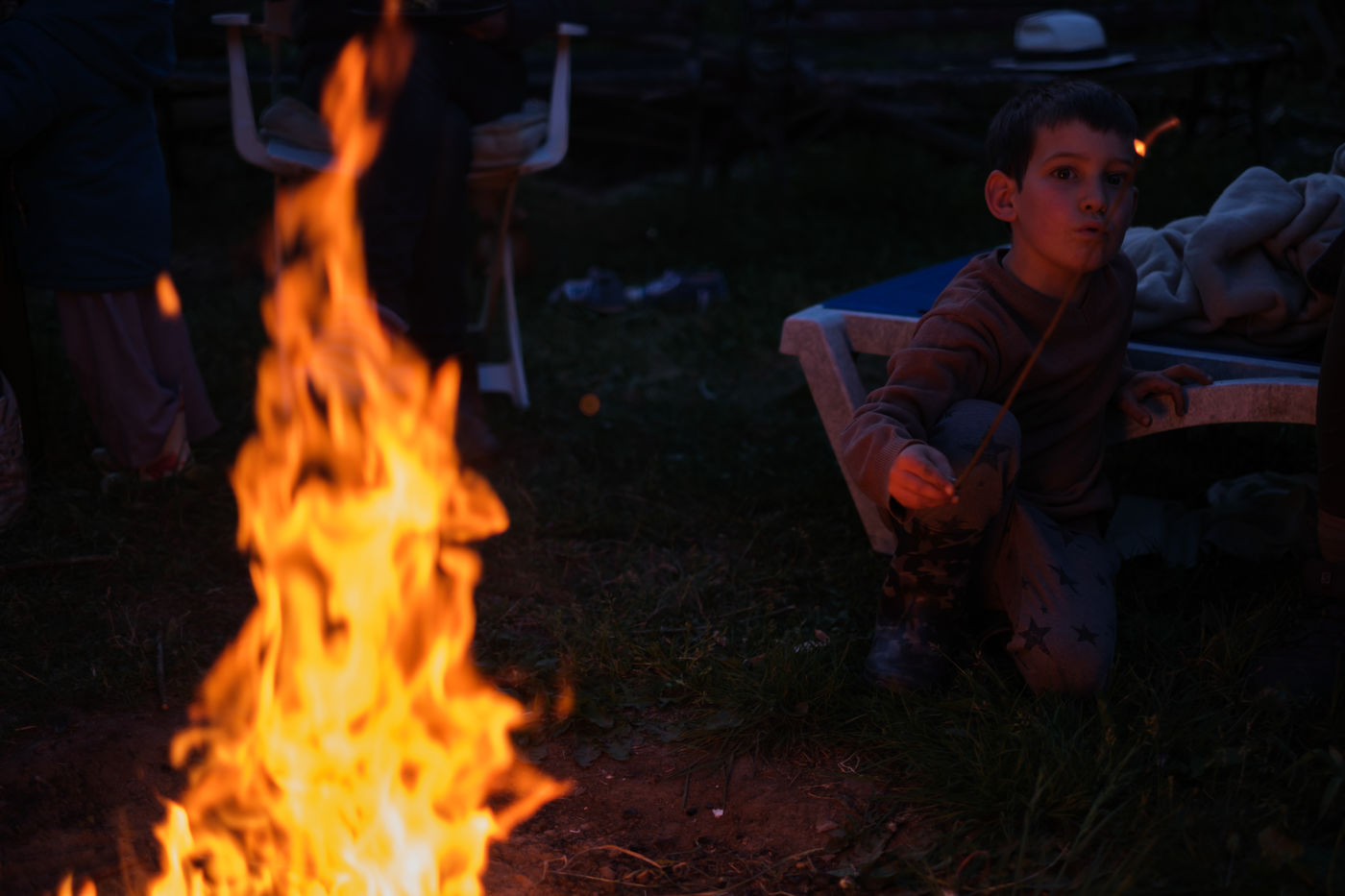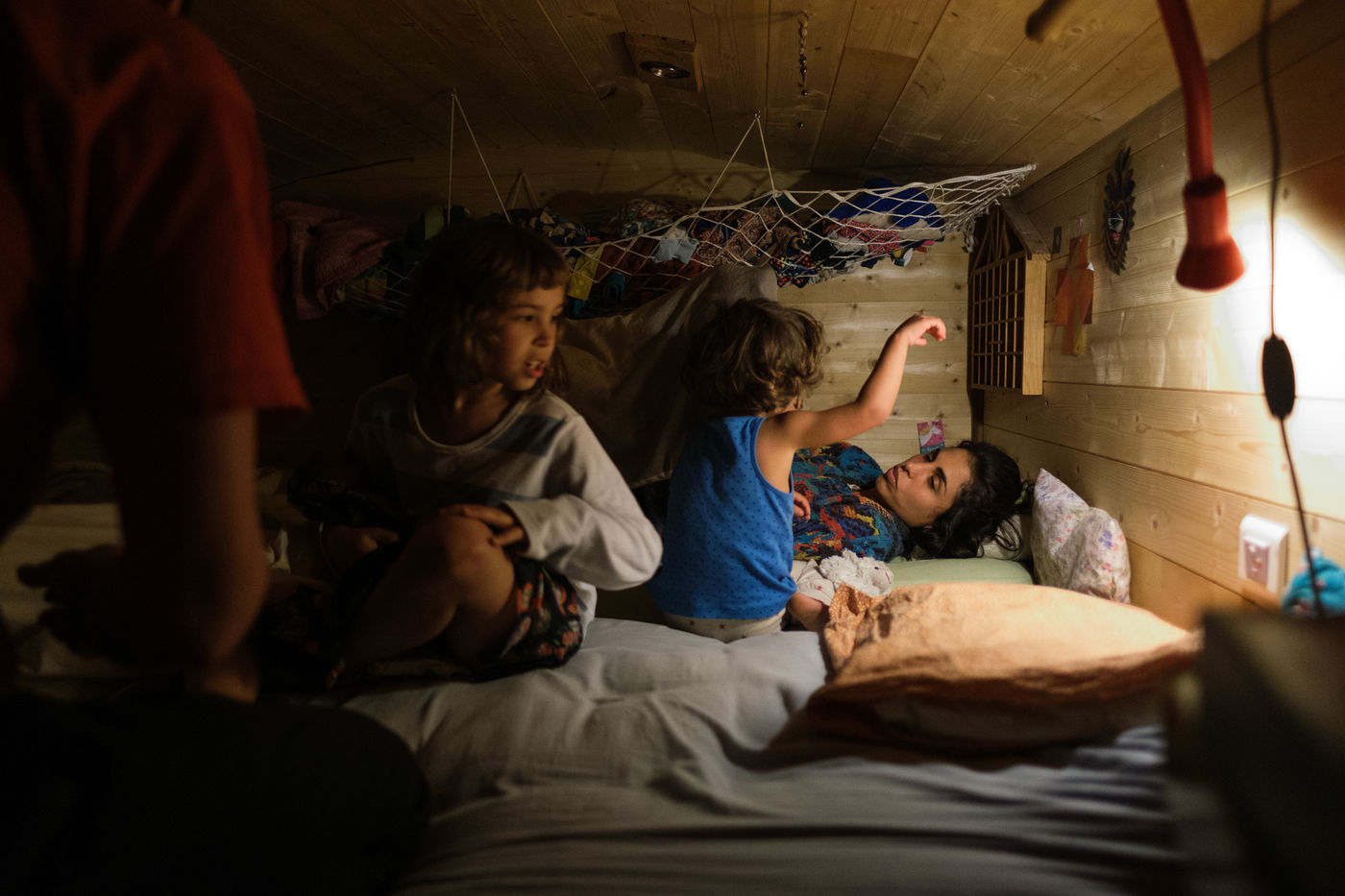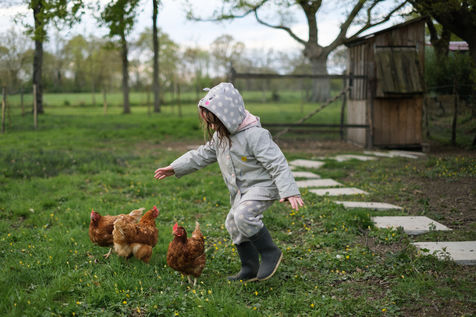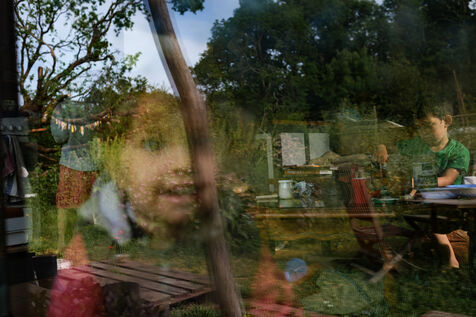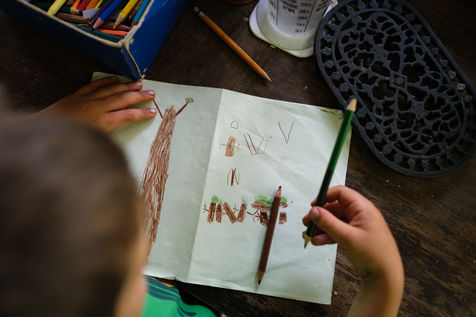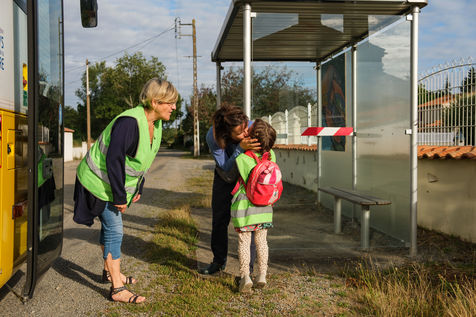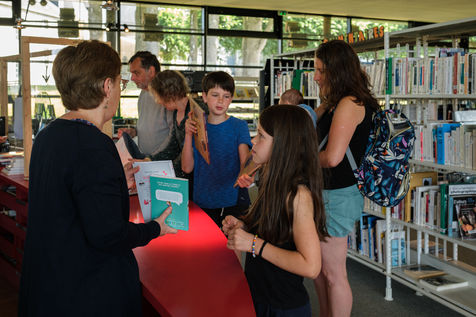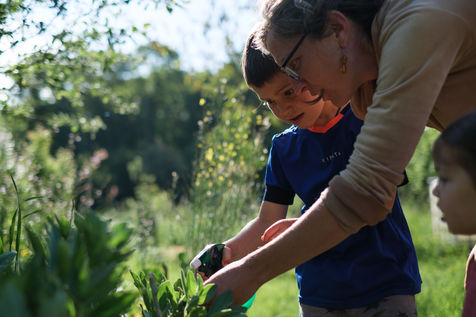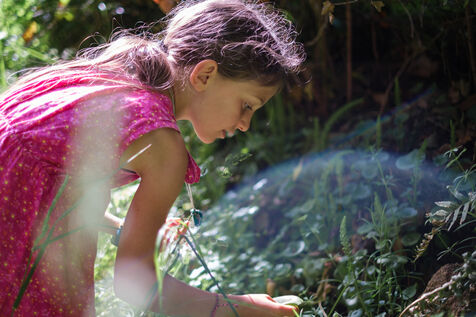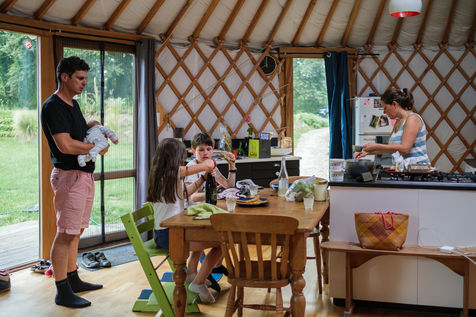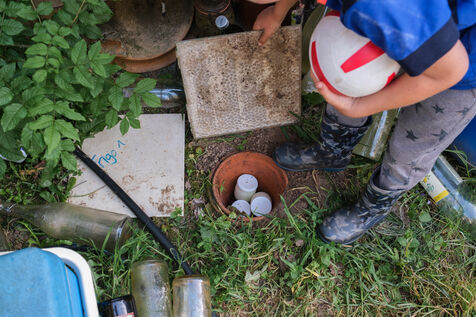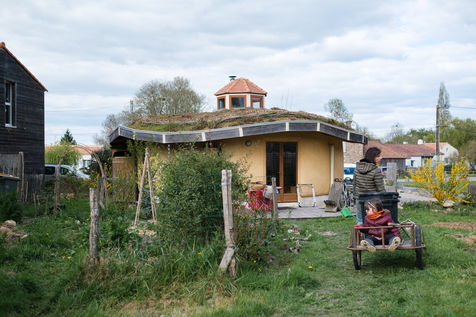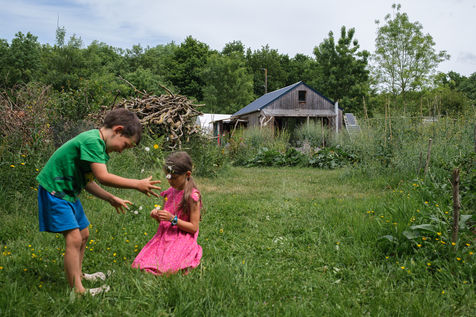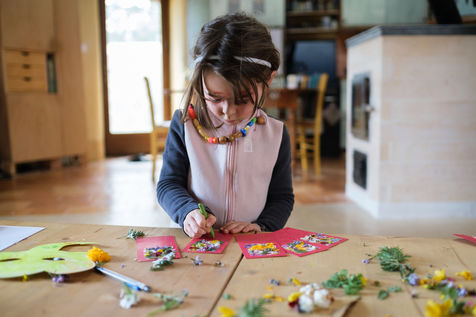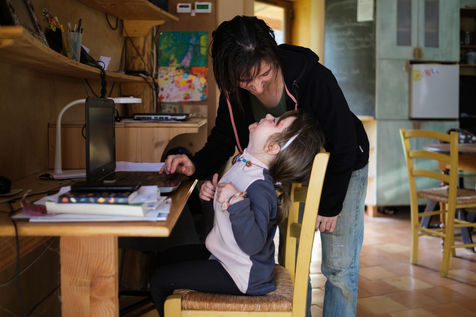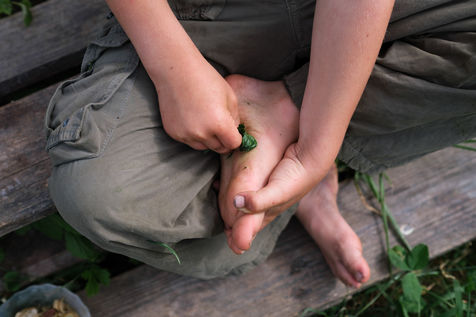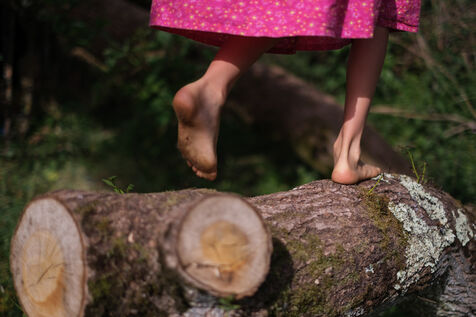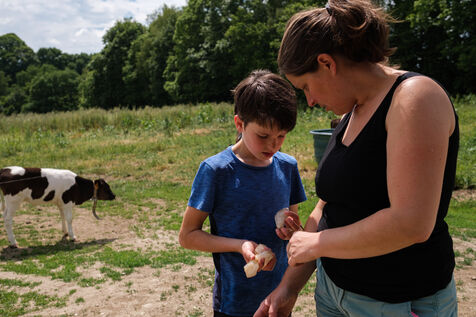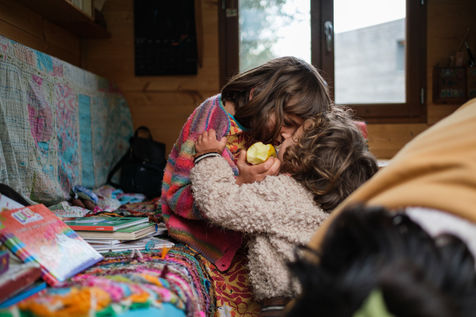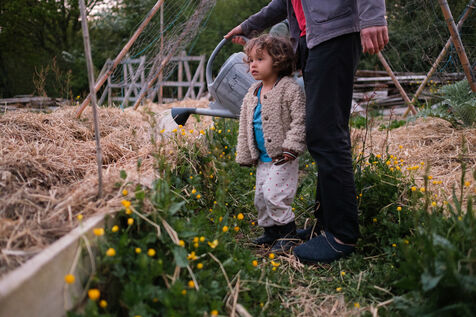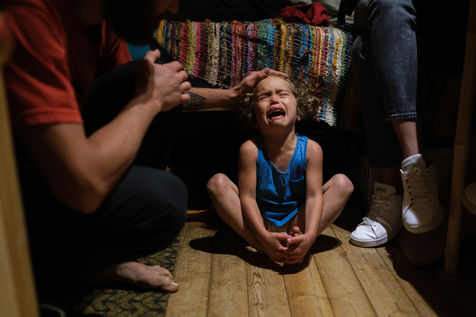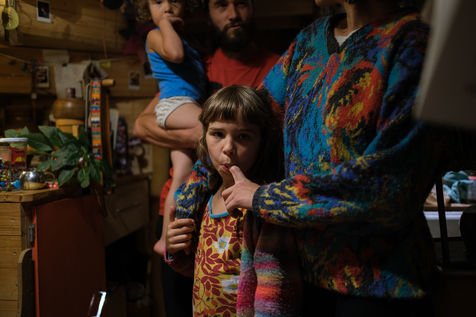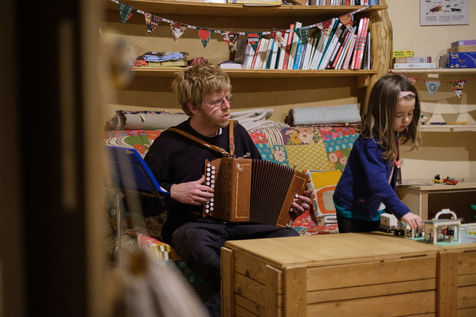Enfances bas carbone
Merci de me contacter pour télécharger des images non téléchargeables.
Exposition au Zoom Photo Festival 2023 (Saguenay, Canada).
Portfolio Sobres enfances publié dans Causette en décembre 2022.
Les émissions de gaz à effet de serre ont réchauffé la surface de la Terre de plus de 1°C depuis la révolution industrielle, avec des conséquences déjà désastreuses. Pour limiter ce réchauffement à 2°C, il faudrait diviser notre empreinte carbone par 5, en changeant radicalement nos modes de vie, et particulièrement nos habitats, transports et alimentation.
En 2022, j'ai suivi le quotidien de quatre familles dans l'ouest de la France mettant déjà en oeuvre ce changement. Leurs enfants grandissent dans des modes de vie très différents de la norme de nos sociétés occidentales et sont les figures de proue d'une nouvelle génération faisant face à une question existentielle posée par les enjeux écologiques : comment préserver un monde vivable et désirable pour tous ?
Le quotidien de ces enfants, leurs jeux, leurs rituels et leurs apprentissages ouvrent la voie à la possibilité d'une sobriété volontaire heureuse, qu'ils souhaiteront peut-être, en grandissant, transmettre plus largement dans la société.
Low carbon childhoods
Please contact me for non-downloadable images.
Exhibition at the Zoom Photo Festival 2023 (Saguenay, Canada).
Portfolio Sustainable childhoods published in Causette in December 2022.
Greenhouse gas emissions have warmed the Earth's surface by more than 1°C since the industrial revolution, with already disastrous consequences. To limit global warming to 2°C, we need to divide our carbon footprint by 5, by radically changing our lifestyles, and particularly the way we live, travel and eat.
In 2022, I followed the daily lives of four families in the west of France who are already implementing this change. Their children are growing up in very different lifestyles from the norm in our Western societies, and are the leading figures of a new generation facing an existential question raised by ecological issues: how can we preserve a world that is liveable and desirable for all?
The day-to-day life of these children, their games, rituals and learnings open the way to the possibility of a happy deliberate frugality, which they may, as they grow up, want to pass on to others.
